Call Notes: Compute Hardware & Semiconductor Ecosystem

Every quarter I participate in a call for buy-side investment analysts focused on compute hardware and the broader semiconductor ecosystem. Here, I’m sharing the raw notes from that call.
Research Note: Microsoft Azure Maia 200 Inference Accelerator
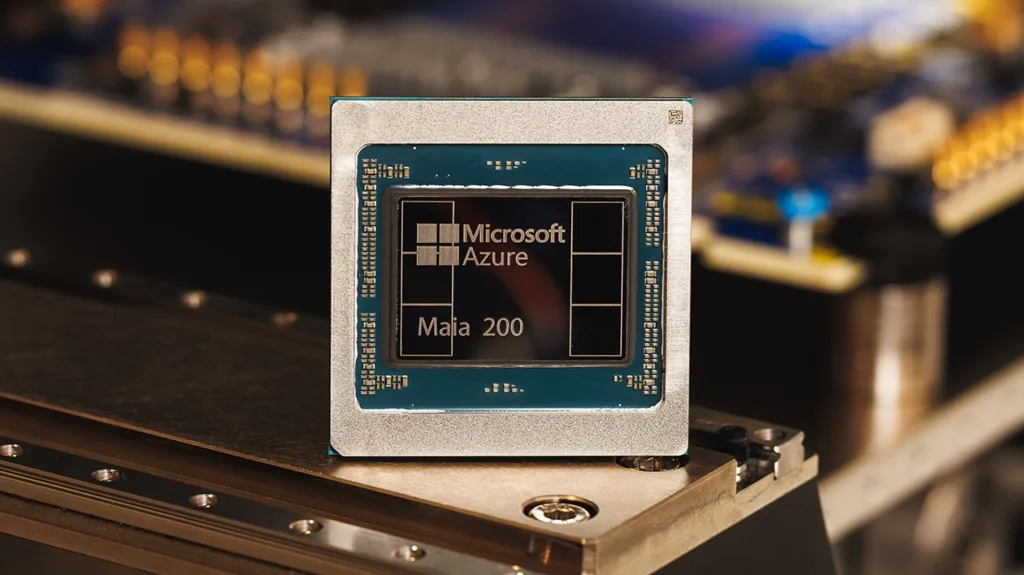
Microsoft recently announced its second-generation custom AI accelerator, the Maia 200. The new chip is an inference-optimized alternative to third-party GPUs in its Azure infrastructure. The company says the accelerator delivers 30% better performance per dollar than existing Azure hardware while supporting OpenAI’s GPT-5.2 models and Microsoft’s own synthetic data generation workloads.
Research Note: Commvault Unified Data Vault, S3-Compatible Protection for Modern Workloads
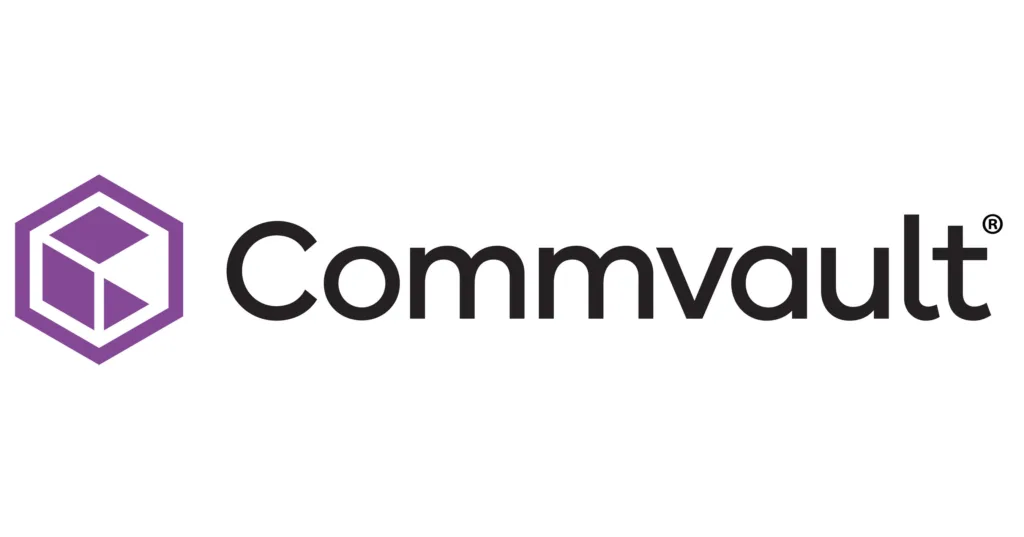
Commvault recently announced its Commvault Cloud Unified Data Vault, a cloud-native service that extends its air-gapped protection capabilities to data written using the S3 protocol. The service provides an S3-compatible endpoint that applies policy-driven protection to S3-based workloads without requiring agent installation or custom integration work.
Research Note: WD Innovation Day
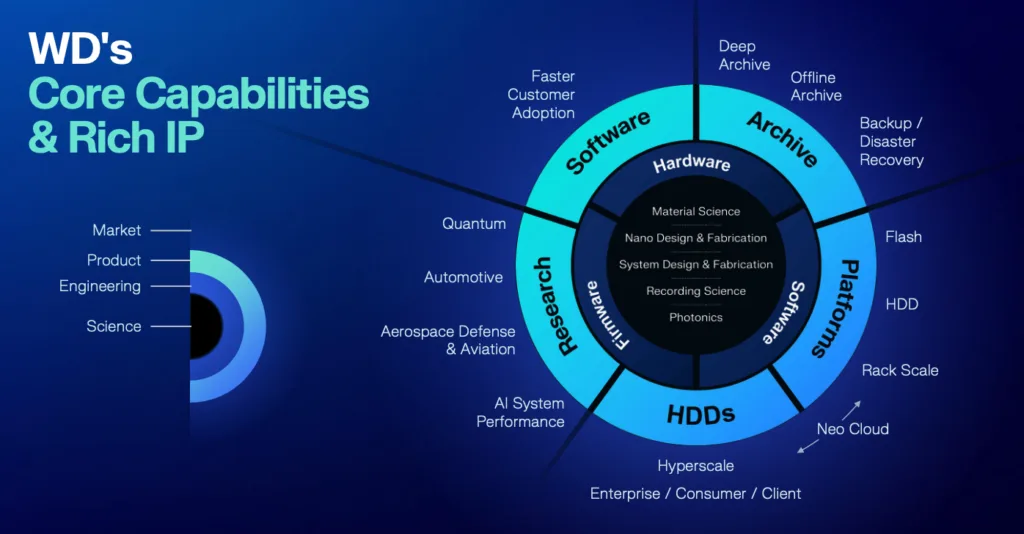
Western Digital’s February 2026 Innovation Day showed a company fundamentally transformed from its legacy PC-centric storage roots into a critical AI infrastructure provider. The presentations unveiled breakthrough innovations that challenge long-held assumptions about hard drive technology limits.
Explainer: What Does It Mean to “Support Apache Iceberg” in a Storage System
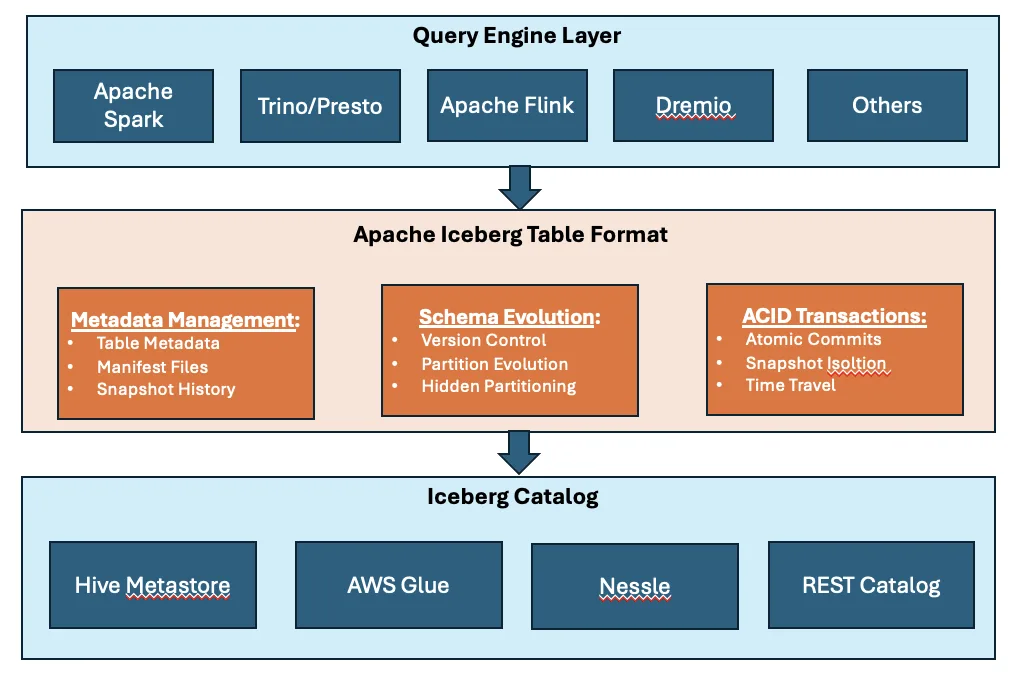
Over the past several years, “Apache Iceberg support” has quietly become table stakes in modern data infrastructure conversations. Storage vendors list it in press releases, lakehouse platforms lead with it and architects assume it.
Research Note: Veeam Acquires Object First, Consolidating Its Backup Appliance Strategy
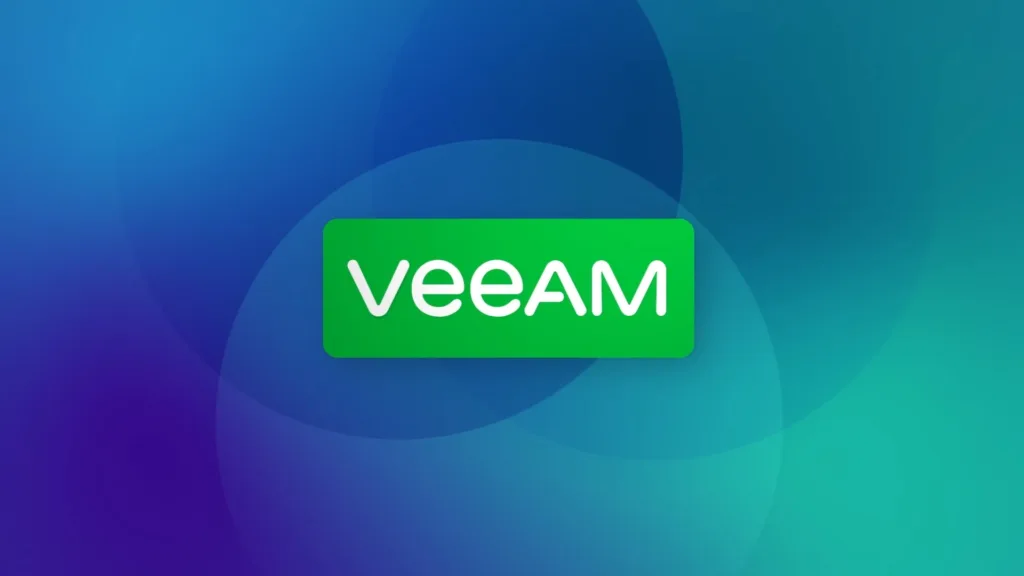
Veeam recently confirmed its acquisition earlier this month of Object First, an immutable backup storage appliance vendor founded by Veeam’s original co-founders Ratmir Timashev and Andrei Baronov in 2022.
The transaction resolves a strategic conflict where Veeam competed directly with Object First’s Ootbi appliance while simultaneously offering its own Veeam Software Appliance for backup storage. The acquisition provides Veeam with purpose-built hardware capabilities to complement its software-first strategy.
Research Note: HPE’s New Networking & Compute (NRF 2026)
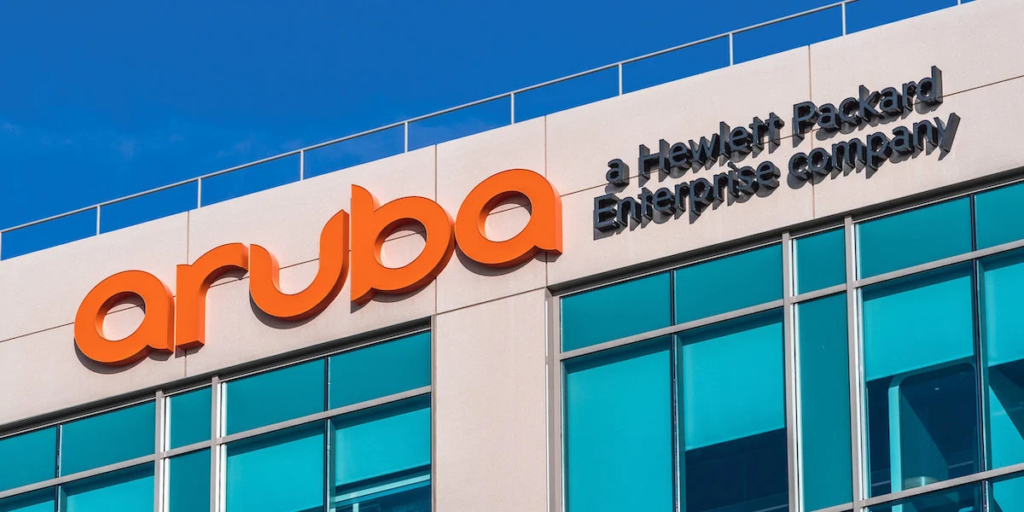
At the recent NRF 2026 in New York, HPE expanded its retail-focused infrastructure portfolio with new networking and compute capabilities intended for always-on retail environments. The announcements emphasize tighter integration between edge networking, cloud-native AI operations, and fault-tolerant compute to support transaction continuity, operational visibility, and distributed retail services.
Research Note: CrowdStrike’s Shopping Spree, Acquires SGNL and Seraphic
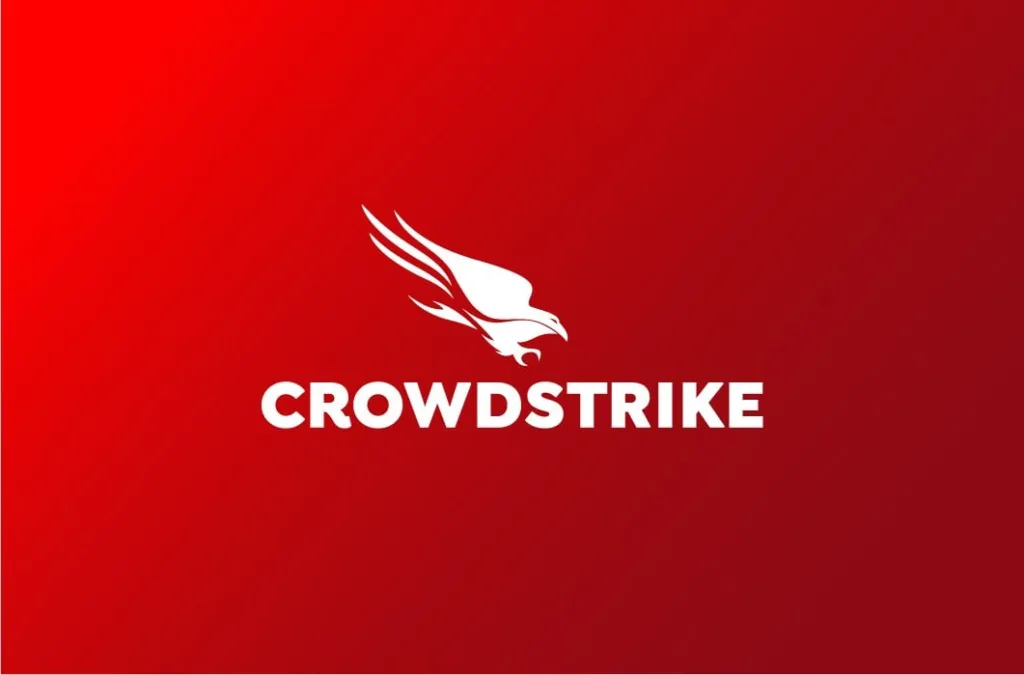
CrowdStrike announced two strategic acquisitions in January 2026 that extend its Falcon platform into browser runtime security and continuous identity authorization. The company acquired SGNL for $740 million and Seraphic Security for an undisclosed amount, with both transactions expected to close in Q1 FY2027.
Research Note: Dell PowerStore OS v4.3 brings Capacity Expansion and Enterprise Resilience Enhancements
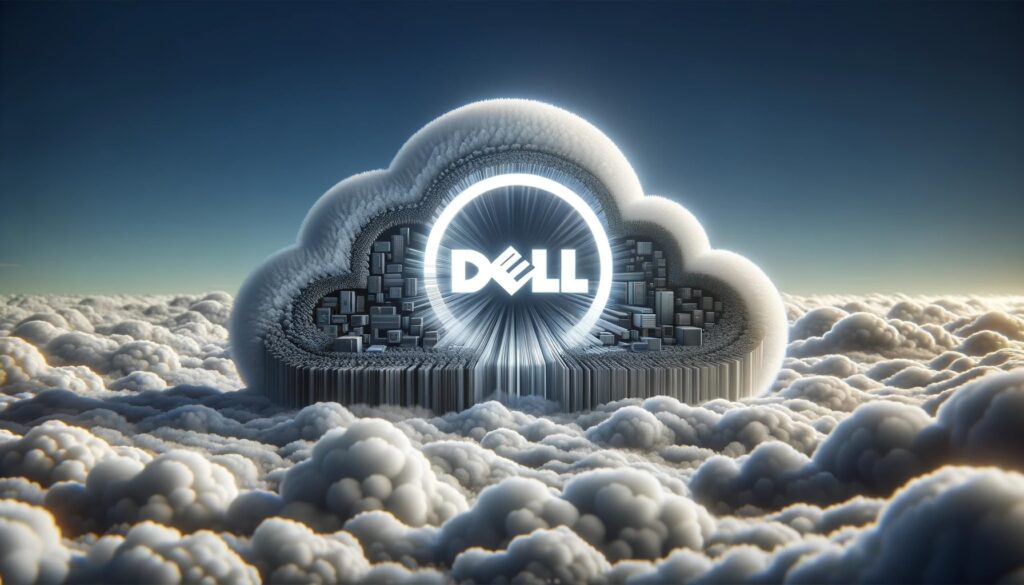
Dell Technologies has released PowerStore OS v4.3, introducing higher-capacity QLC flash drives, expanded replication capabilities, and file system operational improvements.
Research Note: Dynatrace Acquires DevCycle, Integrating Observability & Feature Management

Dynatrace this week announced the acquisition of DevCycle, a feature management platform built on the OpenFeature standard. The acquisition addresses a fundamental gap in modern software delivery: the disconnect between feature flag controls and runtime observability.
Research Note: Snowflake Acquires Observe, Advancing Data Platform & Observability Integration

Snowflake recently announced a definitive agreement to acquire Observe, an AI-powered observability platform built on Snowflake’s infrastructure. Valued at approximately $1 billion, this is Snowflake’s second observability-related acquisition, after TruEra in May 2024.
These acquisitions challenge the traditional separation between observability infrastructure and data platforms. By treating telemetry data (logs, metrics, traces) as first-class data within Snowflake rather than requiring specialized observability infrastructure, the combined offering promises to reduce observability costs while enabling full-fidelity data retention.
“Chips” is now the “C” in CES

While the focus of CES 2026 remained on consumer electronics, this year felt different. More expansive, with the semiconductor industry dominating the pre-show with overlapping announcements that reveal diverging strategies for AI workload acceleration, manufacturing sovereignty, and market expansion beyond traditional computing segments.
Research Report: Cisco FlashStack with Nutanix
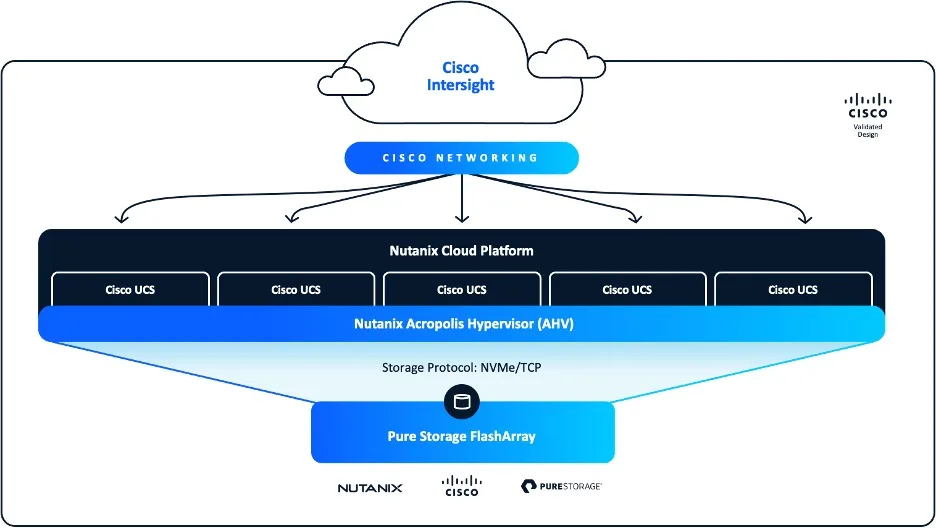
The enterprise infrastructure market is faced with disruption across multiple fronts. Traditional virtualization platforms face unprecedented disruption, while emerging AI-first workloads demand architectures that seamlessly span on-prem, cloud, and edge environments.
It’s against this backdrop that Nutanix, Cisco, and Pure Storage have collaborated to reimagine converged infrastructure with Cisco’s FlashStack with Nutanix.
Research Note: VAST’s Novel Approach to NVIDIA’s new Inference Context Memory Storage Platform
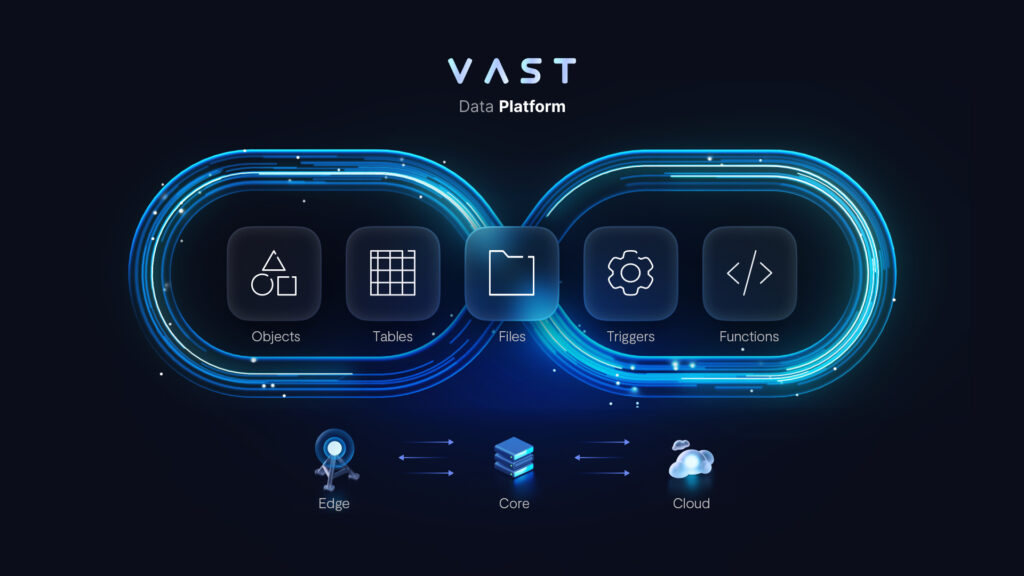
VAST Data announced support for NVIDIA’s recently unveiled Inference Context Memory Storage (ICMS) Platform, targeting the NVIDIA Rubin GPU architecture. The announcement addresses the challenge of managing KV cache data that exceeds GPU and CPU memory capacity as context windows scale to millions of tokens across multi-turn, agentic AI workflows.
Research Note: Improving Inference with NVIDIA’s Inference Context Memory Storage Platform
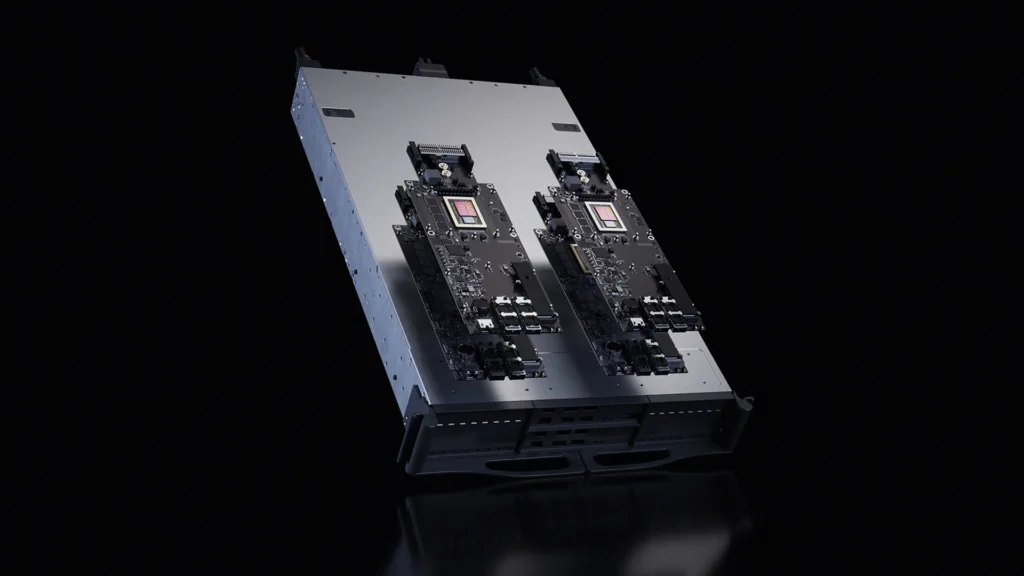
At NVIDIA Live at CES 2026, NVIDIA introduced its Inference Context Memory Storage (ICMS) platform as part of its Rubin AI infrastructure architecture. NVIDIA’s ICMS addresses KV cache scaling challenges in LLM inference workloads.
The technology targets a specific gap in existing memory hierarchies where GPU high-bandwidth memory proves too limited for growing context requirements while general-purpose network storage introduces latency and power consumption penalties that degrade inference efficiency.
Research Note: Dynatrace & Google Cloud Collaborate on Observability for Agentic AI

Dynatrace and Google Cloud have expanded their collaboration to provide observability capabilities for agentic AI workloads through two primary integrations: a Gemini CLI extension for developer access to observability data within terminal environments, and an A2A protocol integration with Gemini Enterprise for real-time system monitoring.
Research Note: Nutanix and Pure Storage Integrated Solution now GA
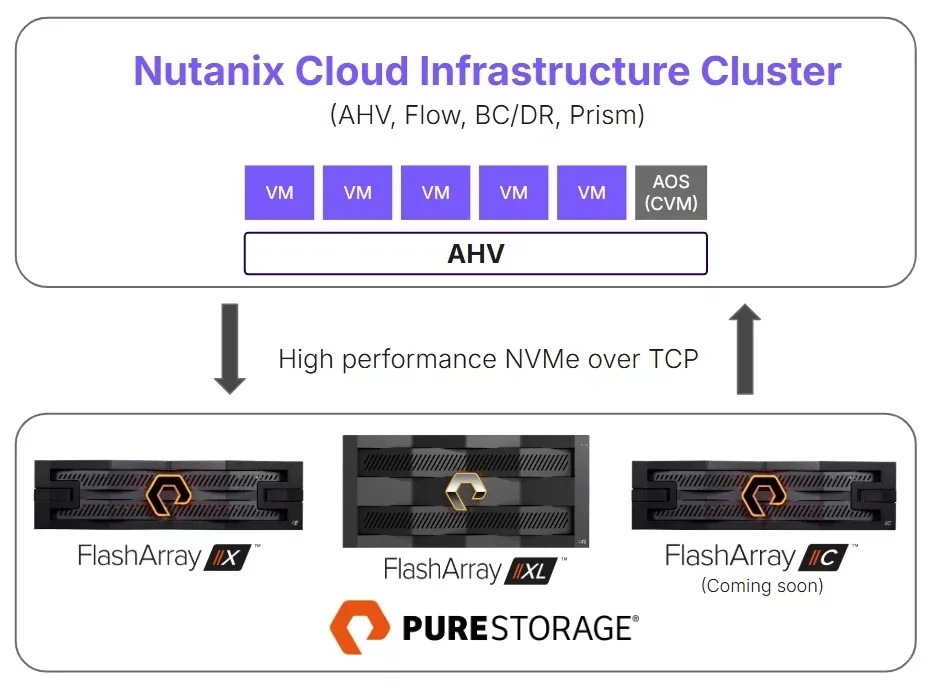
Nutanix and Pure Storage announced the general availability of their previously announced integrated solution combining Nutanix Cloud Infrastructure with Pure Storage FlashArray. The partnership addresses growing market pressure around VMware licensing costs and vendor consolidation following Broadcom’s acquisition.
Research Note: ServiceNow Acquires Cyber-Security Player Armis for $7.75 Billion

ServiceNow recently entered into an agreement to acquire Armis, a cyber exposure management and cyber-physical security platform, for $7.75 billion in cash. The transaction is ServiceNow’s third major security-focused acquisition in 2025, following Moveworks ($2.85 billion) and Veza (undisclosed terms).
Call Notes: Q4 2025 Neocloud Market

Just before the Holiday break, I participated in an advisory session on the current state of the neocloud market, which is continuing to experience significant growth as the demand for AI infrastructure continues unabated. Can it continue?
Here I’m sharing some of the notes I used for that discussion.
Call Notes: Memory & NAND Market Update (Dec 2025)

Just before the Holiday break, I participated in an advisory session on the current state of the memory and NAND market, which is experiencing a marked upturn driven by constrained supply of legacy DRAM products and surging demand from higher-margin products like HBM and DDR5.
Here I’m sharing some of the notes I used for that discussion.
The Ecosystem Takes Center Stage at AWS re:Invent 2025

AWS re:Invent 2025 has become an industry show, with this year’s event showcasing a partner ecosystem focused on agentic AI integration and unified observability. The conference featured major announcements from enterprise ISVs, security platforms, and enterprise software providers, all positioning their technologies to work seamlessly with AWS’s new AI capabilities.
Research Note: IBM to Acquire Confluent for Real-Time Event Streaming

IBM has entered a definitive agreement to acquire Confluent for $11 billion in cash ($31 per share), adding enterprise-grade Apache Kafka streaming infrastructure to its hybrid cloud and AI portfolio. Confluent brings 6,500 enterprise customers, proven streaming architecture handling real-time data flows across hybrid environments, and capabilities specifically relevant to emerging agentic AI requirements. The […]
Research Note: Lenovo’s Expanded Storage and HCI Portfolio for Enterprise Modernization & AI Workloads
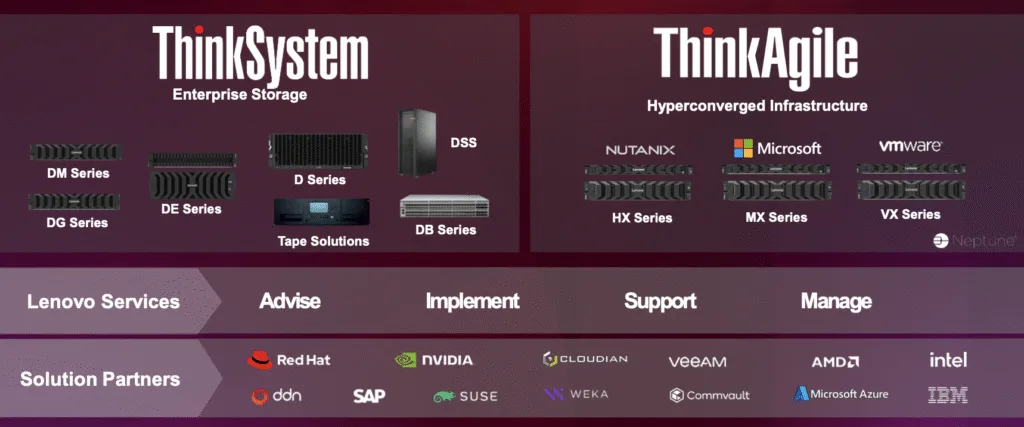
Lenovo announced a comprehensive update to its storage and hyperconverged infrastructure portfolio. The announcement includes four new ThinkSystem DS Series all-flash SAN arrays, three ThinkAgile HCI product lines supporting VMware, Nutanix, and Microsoft Azure Local environments, and expanded lifecycle services.
Research Note: Qualcomm Acquires RISC-V Player Ventana

Qualcomm Technologies this week announced the acquisition of Ventana Micro Systems, a developer of high-performance RISC-V CPU designs for datacenter and enterprise applications. The acquisition brings proven RISC-V engineering talent and existing chiplet designs into Qualcomm’s portfolio, complementing its custom Arm-based Oryon CPU development.
Research Note: Marvell to Acquire Silicon Photonics Player Celestial AI
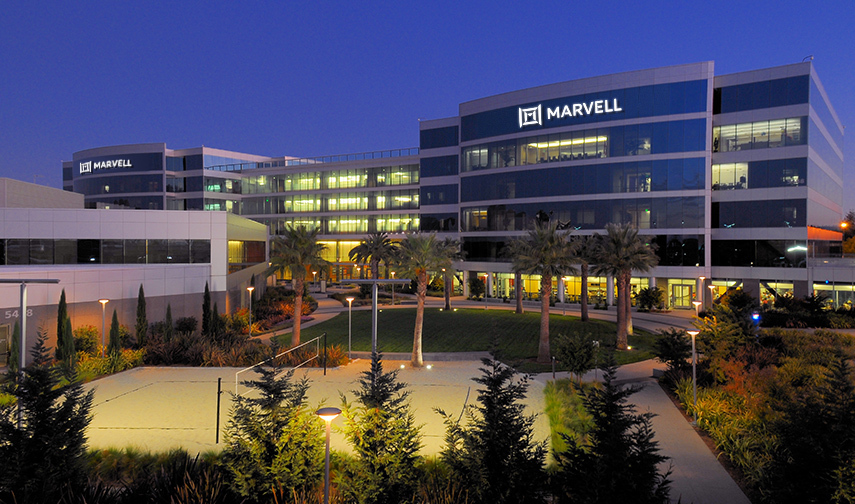
Marvell Technology recently announced a definitive agreement to acquire Celestial AI for $3.25 billion in upfront consideration ($1 billion cash plus $2.25 billion in stock), with potential earnout payments of up to an additional $2.25 billion based on revenue milestones through fiscal 2029.
Research Note: AWS S3 AI-Focused Enhancements
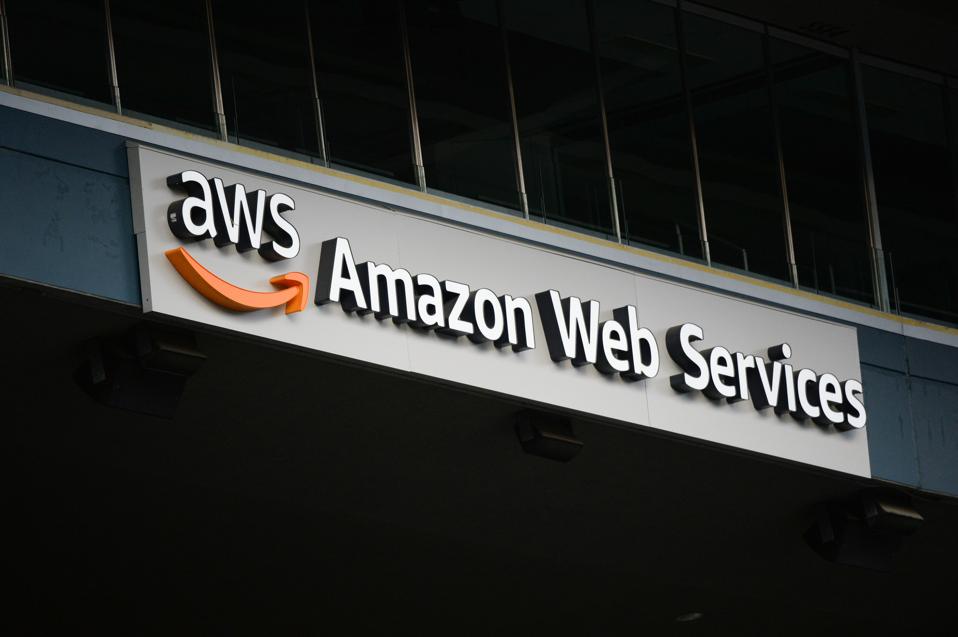
AWS announced several enhancements to its S3 storage platform at its recent re:Invent 2025, strengthening its object storage capabilities for adjacent markets, including vector databases, enterprise file systems, and enterprise data lakes.
The announcements include the general availability of S3 Vectors with substantially increased scale limits, new S3 integration with FSx for NetApp ONTAP file systems, cost-optimization features for S3 Tables, and expanded performance monitoring through S3 Storage Lens.
Research Note: AWS Releases Trainium3, Teases Trainium4
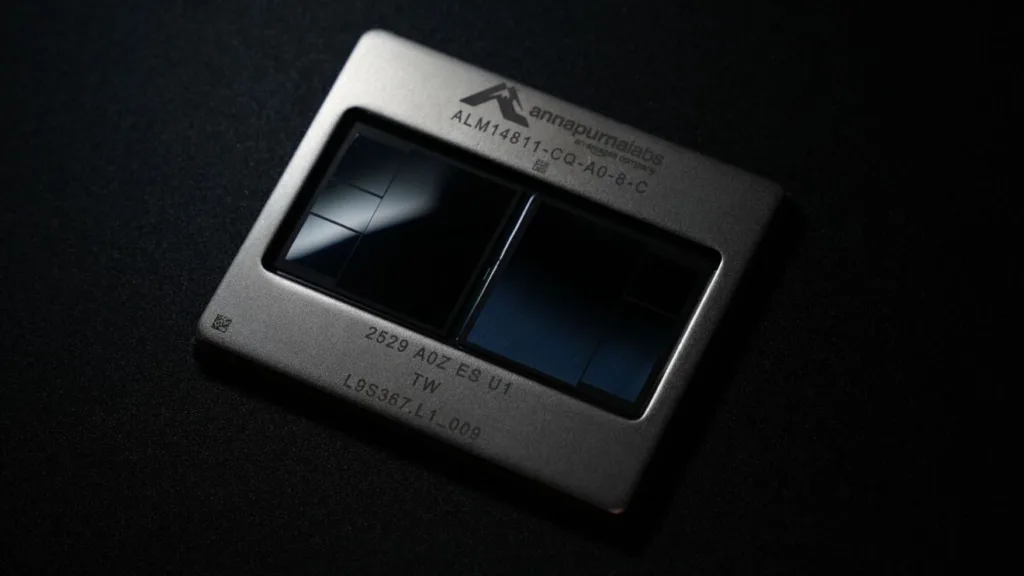
At its recent AWS re:Invent event, AWS moved its custom AI accelerator strategy into a new phase with the general availability of EC2 Trn3 UltraServers based on the Trainium3 chip and the public preview of its next-generation Trainium4.
Research Note: HPE Announcements at Discover Barcelona 2025
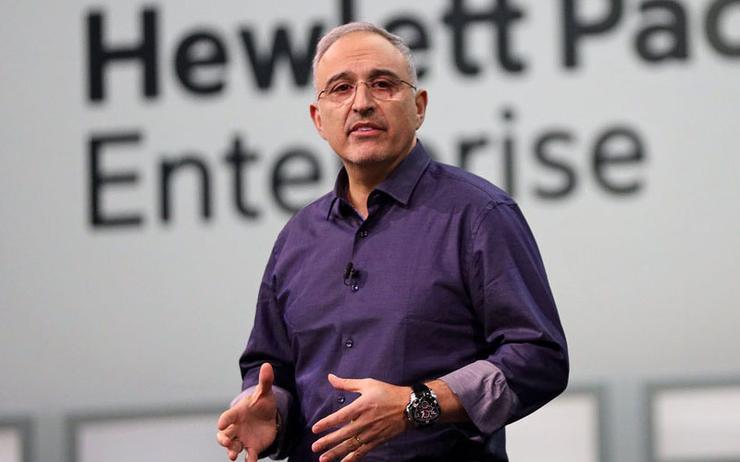
At HPE Discover Barcelona 2025, Hewlett Packard Enterprise centered its announcements on three core pillars of enterprise infrastructure: networking for AI workloads, hybrid cloud and virtualization enhancements, and AI infrastructure systems at scale.
Research Note: VAST Data Expands Cloud Presence with Microsoft Azure and Google Cloud Integrations

This month VAST Data announced integrations with both Microsoft Azure and Google Cloud, significantly expanding its hyperconverged approach to AI Storage, what its calls its “AI Operating System,” further into major public cloud environments.
Azure customers will gain access to VAST’s complete data services suite running on Azure infrastructure, while Google Cloud users receive the first fully managed VAST AI OS service. Both integrations emphasize eliminating data migration barriers and supporting agentic AI workloads.
SC25: Beyond Super Computing
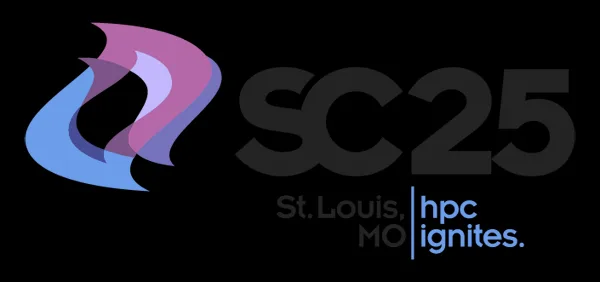
Supercomputing 2025 delivered a clear message to enterprise IT leaders: the infrastructure conversation has fundamentally changed. The announcements from SC25 were about architectural transformation.
From rack-scale designs to quantum integration to facility-level engineering, the building blocks of large-scale AI and HPC systems are being reimagined.
Research Note: VAST Data Integrates with Google Cloud & Microsoft Azure

Over the past month, VAST Data has announced partnerships with both Google Cloud and Microsoft Azure to deliver its hyperconverged approach to AI data management (which it calls an “AI Operating System”) as a managed service in public cloud environments.
Research Note: Dell Adds 20+ Features to its AI Factory
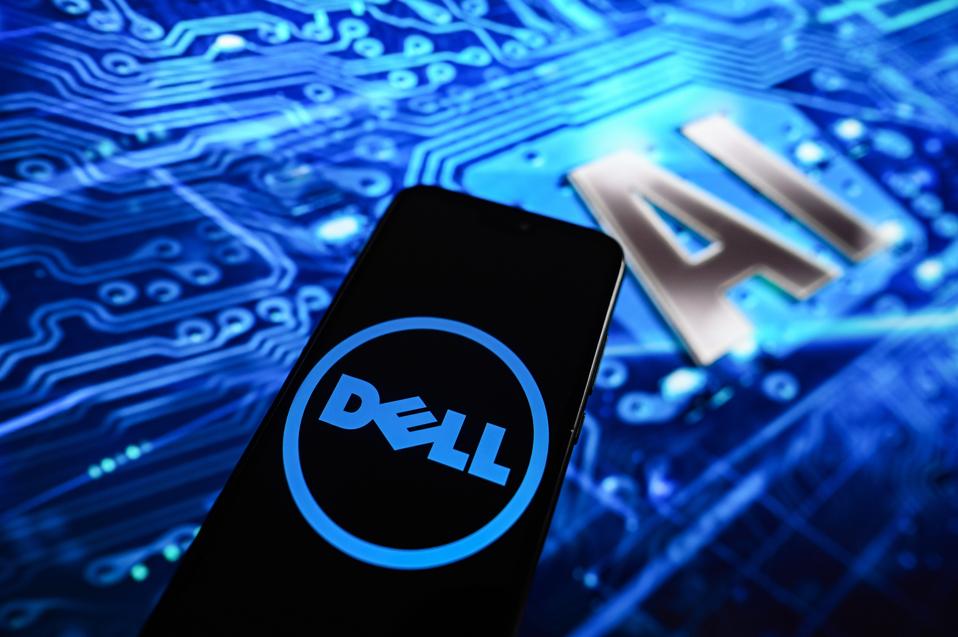
Dell Technologies announced more than 20 updates to its AI Factory portfolio ahead of next week’s SC25 event, spanning compute, storage, networking, and cooling infrastructure. The announcements center on three primary themes: expanded support for NVIDIA Blackwell GPUs across multiple server platforms, introduction of AMD MI355X-based systems, and deeper integration of automation tools across the infrastructure stack.
Research Note: VDURA Data Platform v12
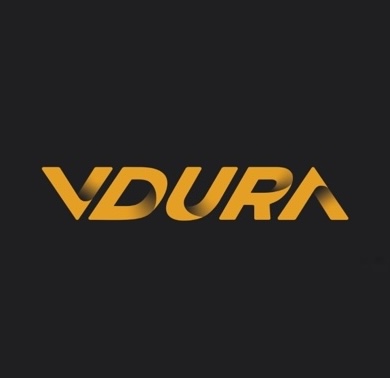
VDURA recently announced Version 12 of its VDURA Data Platform (VDP), formerly known as PanFS, introducing three primary architectural enhancements to its parallel file system: an elastic Metadata Engine for distributed metadata processing, system-wide snapshot capabilities, and native support for SMR disk drives.
Research Note: Snowflake BUILD 2025 Announcements
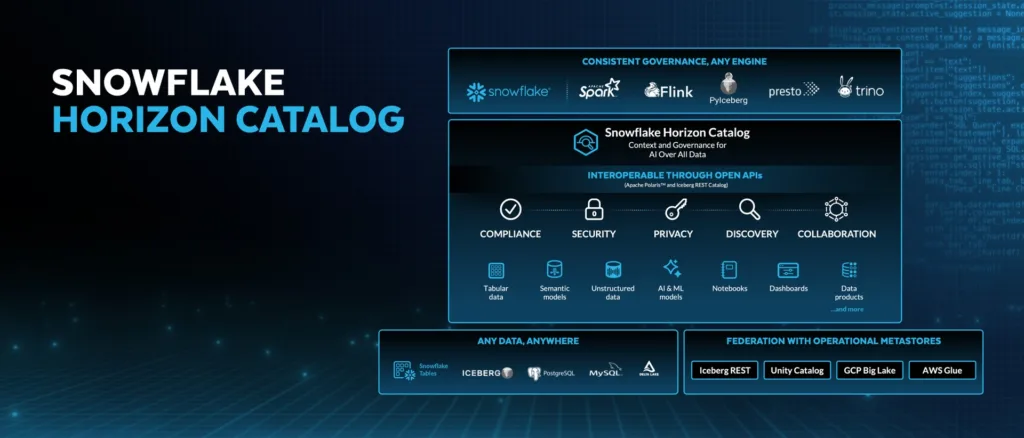
At its recent BUILD 2025 event, Snowflake unveiled a substantial array of platform updates centered on three core themes: compute performance optimization, data interoperability across heterogeneous environments, and operational automation.
The offerings address persistent enterprise challenges around data fragmentation, manual infrastructure management, and the operational overhead of supporting both transactional and analytical workloads on unified platforms.
Call Notes: Memory Market Supply Constraints and Rising Prices (Nov 2025)

Legacy and mobile DRAM types, including DDR4 and LPDDR5X, face severely extended delivery lead times, while contract prices for DRAM and NAND flash are rising sharply. This is leaving Smartphone OEMs and SoC vendors with elevated memory cost burdens that threaten margins and will likely force higher device prices.
Call Notes: Q4 Semiconductor Tracker
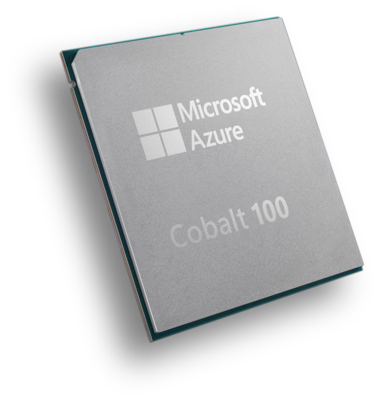
We’re in a moment that’s less about individual chip performance and more about processing-at-scale. It’s all about sprawling AI racks, optics, interconnect, and custom silicon hungry for scale, speed, and a story.
Quick Take: Qualcomm’s Diversification Strategy is Paying Off
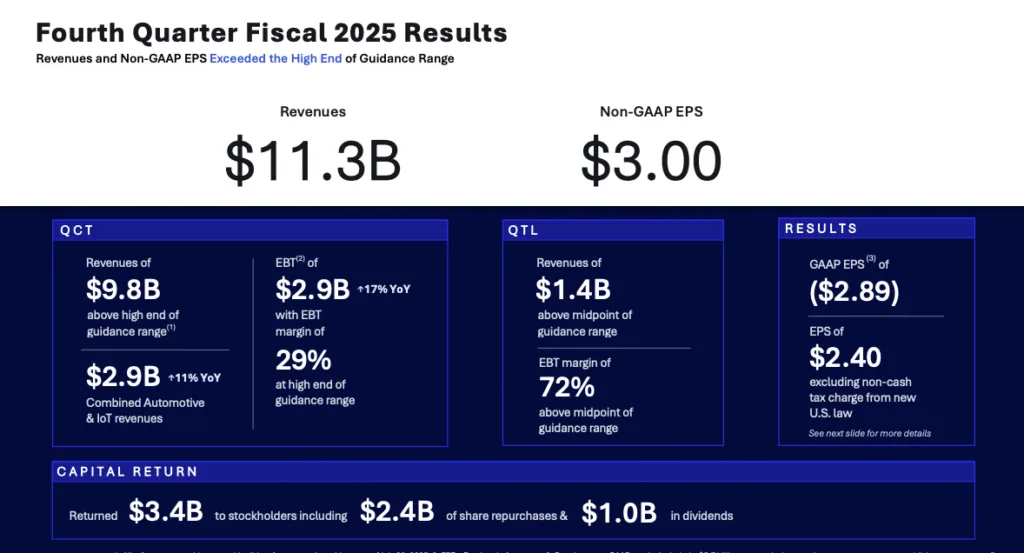
Qualcomm’s fiscal Q4 2025 results tell a story that extends far beyond the smartphone chips that built the company. While the guidance-busting earnings numbers, $11.3 billion in revenue and $3.00 EPS, are impressive, it’s not the full story.
Research Brief: Oracle Database 26ai Delivers Fully Integrated AI
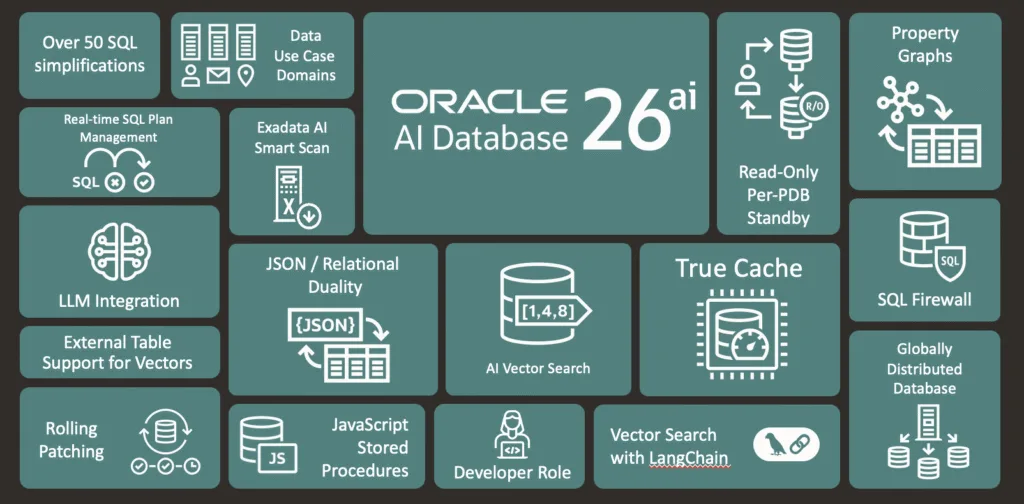
Oracle released its Oracle Database 26ai at its recent AI World event in Las Vegas. The update makes the database an integrated platform that embeds artificial intelligence capabilities across data management, development, and analytics operations.
The platform integrates vector search capabilities with traditional database functions, supports agentic AI workflows through in-database tools and MCP servers, and extends analytics capabilities through Iceberg table format support. Oracle also bundles in advanced AI features, including AI Vector Search, at no additional cost.
Research Brief: Cisco Partner Summit Infrastructure Announcements
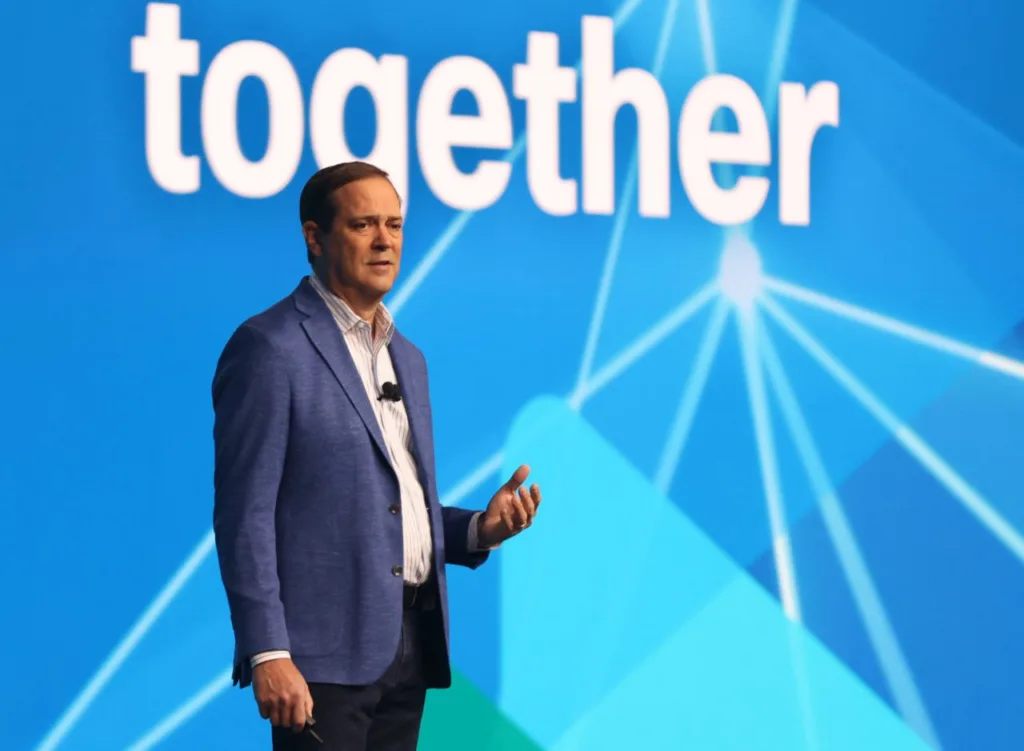
At its 2025 Partner Summit in San Diego this week, Cisco announced three interconnected infrastructure initiatives to address the operational, connectivity, and edge-computing requirements of AI workloads.
The announcements span network management simplification through AgenticOps workflows, GPU-as-a-Service connectivity via SD-WAN integration with Megaport AI Exchange, and a new converged edge computing platform called Unified Edge.
Research Report: Beyond Legacy Virtualization: Wind River’s Modern Alternative for Enterprise Infrastructure
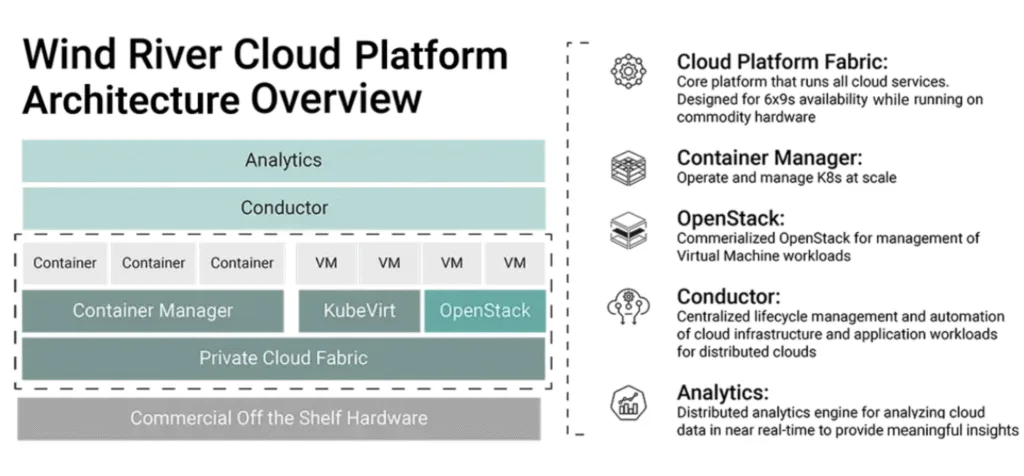
Wind River Cloud Platform emerges as a compelling enterprise-grade alternative that addresses both immediate VMware challenges and long-term infrastructure modernization needs. Built on proven open-source technologies including StarlingX, Kubernetes, and OpenStack, the platform delivers unified management of both virtual machines and containers under a single, highly automated infrastructure solution.
Research Report: Addressing Enterprise AI Data Challenges At Scale with the Dell AI Data Platform

This Research Report looks at how the Dell AI Data Platform addresses the challenges of AI-at-Scale with a purpose-built, modular approach that integrates file, block, and object storage into a unified system optimized for AI. Key components include data engines that enable aggregation, in-place querying, and searching across both structured and unstructured data sets, as well as storage engines that provide the necessary performance, scale, and security across on-premises, edge, and cloud environments.
Oracle AI World 2025: Bringing Cohesion to the AI Data Stack
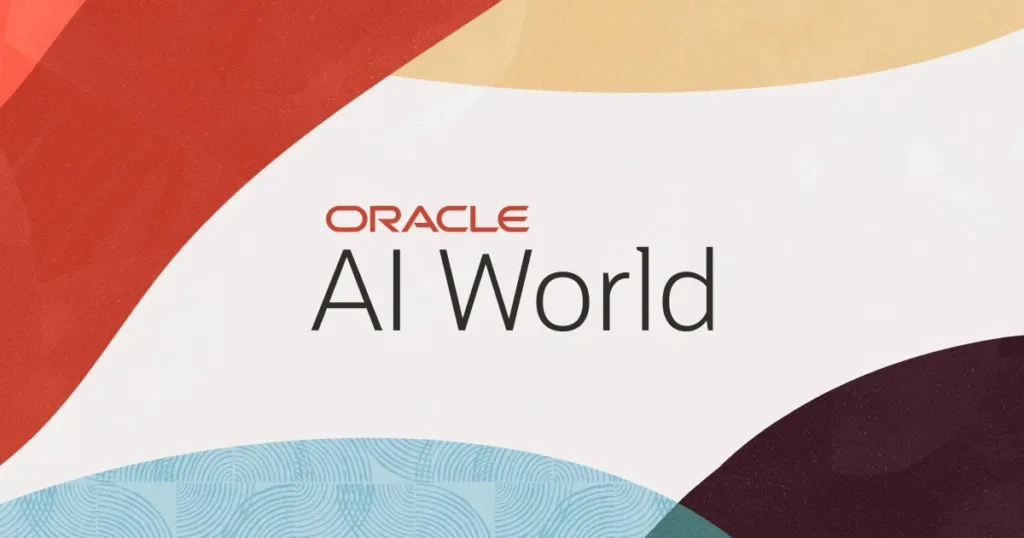
Oracle AI World 2025 in Las Vegas was a clear demonstration of how far the company has come from its roots as a database vendor. This year’s event, as its new name might give away, was all about AI.
Oracle’s announcements centered on its Oracle AI Data Platform, a new Oracle database release, the new Autonomous AI Lakehouse, along with new advances in Oracle’s distributed cloud portfolio, and deepened multi-cloud partnerships with both Google Cloud and AWS. That’s a lot – and we’re just hitting the highlights.
Research Note: Qualcomm Introduces AI200 & AI250 for Data Center Inference
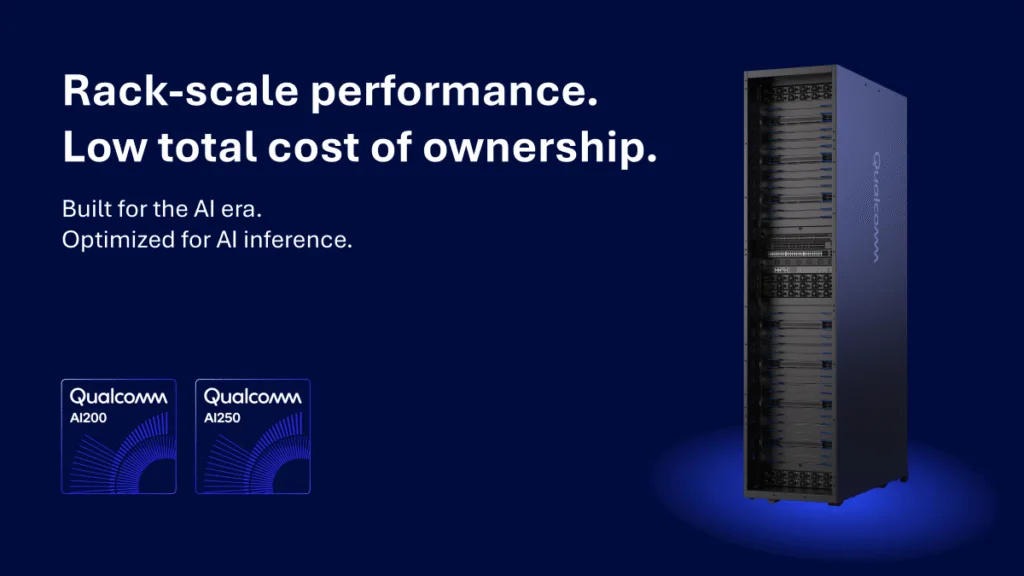
Qualcomm Technologies recently announced two data center inference accelerators, the AI200 and AI250, targeting commercial availability in 2026 and 2027, respectively. The products are Qualcomm’s first strategic push into rack-scale AI inference.
Research Brief: Oracle Autonomous AI Lakehouse
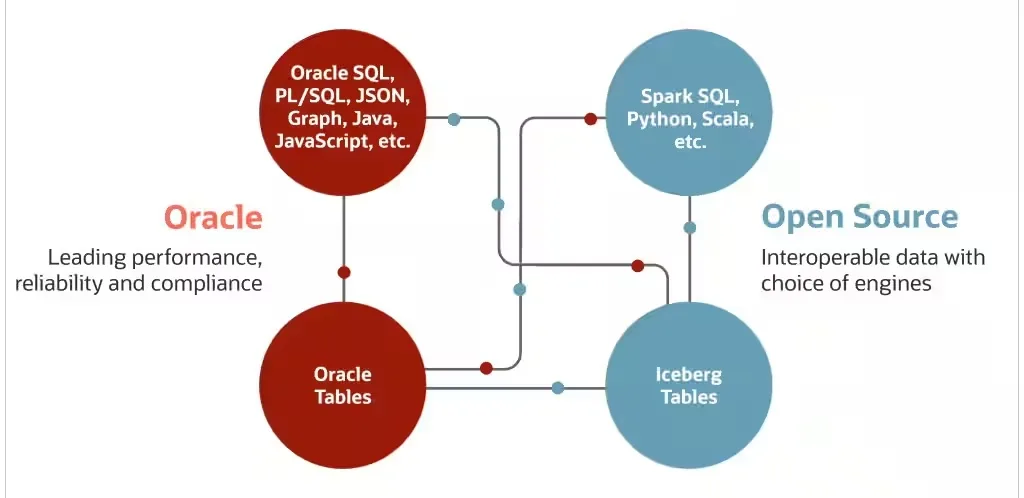
Oracle recently announced its Oracle Autonomous AI at its Oracle AI World event in Las Vegas. The new offering combines Oracle’s Autonomous AI Database platform with native Apache Iceberg support. The offering addresses persistent enterprise challenges around data lock-in and platform interoperability by providing standardized access to data across multiple clouds and catalogs.
Research Note: Red Hat AI 3.0
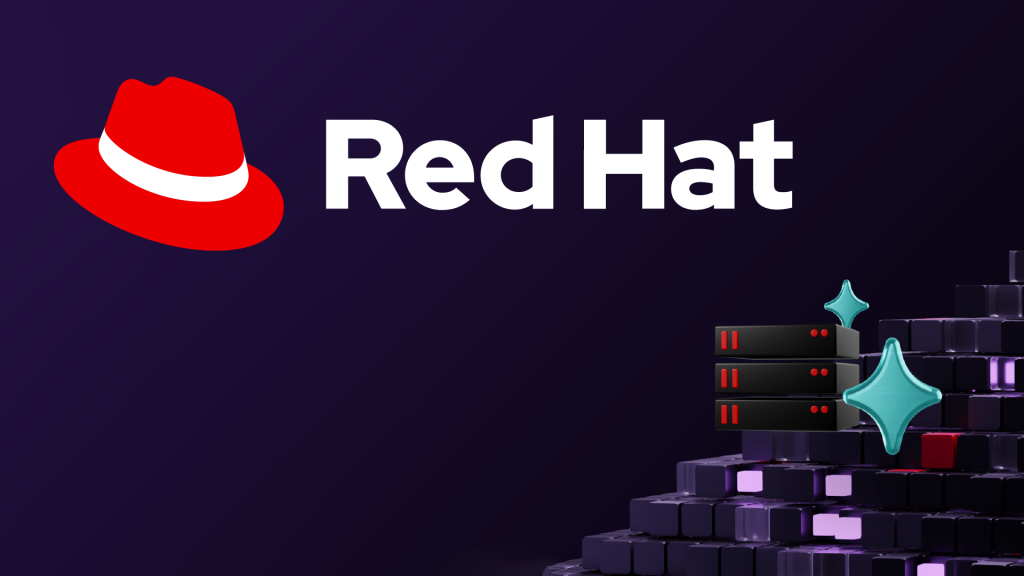
Red Hat released version 3.0 of its AI platform, introducing production-ready features for distributed inference, expanded hardware support, and foundational components for agentic AI systems.
Key additions include the generally available llm-d project for Kubernetes-native distributed inference, support for IBM Spyre accelerators alongside existing NVIDIA and AMD GPU options, and developer preview features for Llama Stack and MCP integration.
IBM TechXchange 2025: Enterprise AI Comes of Age in Orlando
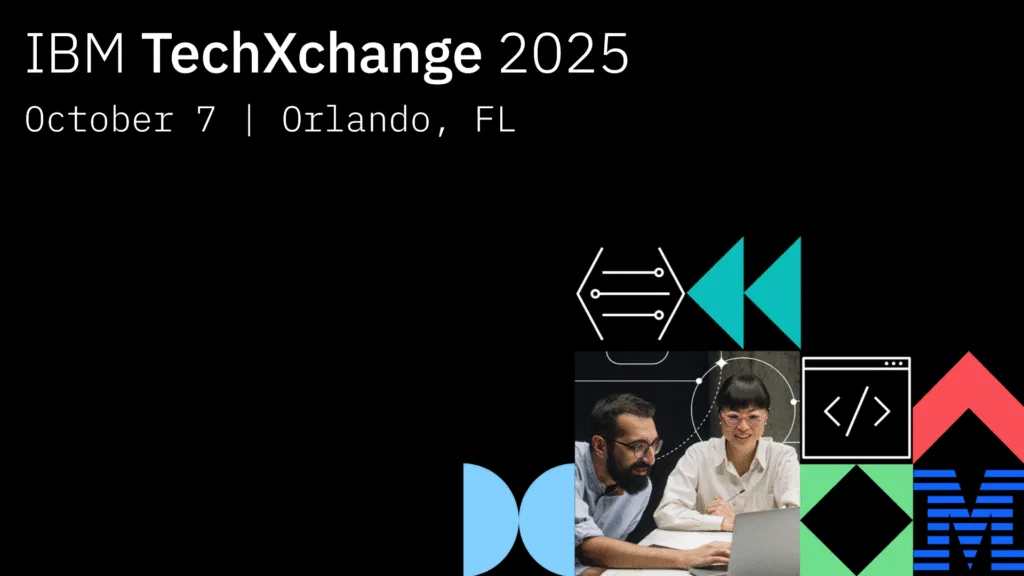
I’ve just returned from IBM TechXchange 2025 in Orlando, and if there was one overarching message from this year’s event, it was this: the era of AI experimentation is over, and IBM is ready to help enterprises bring it to production environments.I’ve just returned from IBM TechXchange 2025 in Orlando, and if there was one overarching message from this year’s event, it was this: the era of AI experimentation is over, and IBM is ready to help enterprises bring it to production environments.
Research Note: Qualcomm Acquires Arduino, Extends IoT Reach
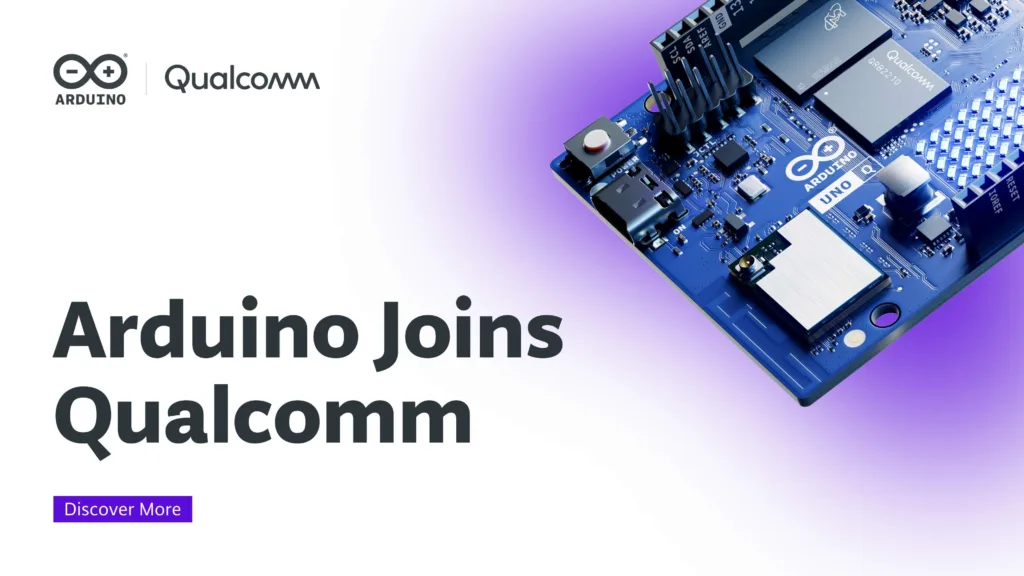
Qualcomm announced its acquisition of Arduino, an open-source hardware and software company with an estimated 33 million active users.
The acquisition arrives as Qualcomm accelerates diversification beyond smartphones through its Dragonwing brand, launched earlier in 2025, showing the strong organizational commitment to IoT and edge computing as primary growth engines, alongside automotive.
Research Note: Qualcomm Shows Strong Automotive Momentum @ IAA
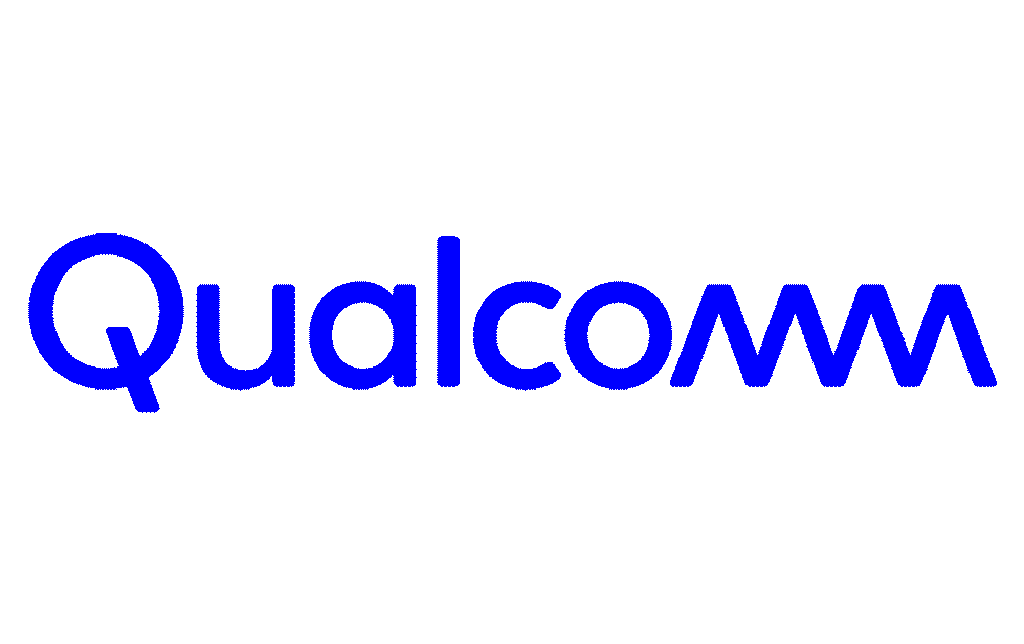
Qualcomm announced multiple strategic partnerships aimed at strengthening its position in the automotive technology market at the recent IAA Mobility 2025 event in Germany.
The company announced collaborations with Mercedes-Benz, BMW Group, Google Cloud, HARMAN, and Valeo, spanning digital cockpit systems, automated driving platforms, AI-powered agents, and ADAS solutions.
Research Note: IBM Releases Granite Model for DocLing Document Processing

IBM recently released Granite-Docling-258M, a specialized vision-language model for document conversion that operates at 258 million parameters under an Apache 2.0 license. The new model is a production-ready iteration of the experimental SmolDocling-256M-preview released earlier this year and incorporates architectural improvements and stability enhancements.
Research Note: Cloudera Adds Support for Dell ObjectScale
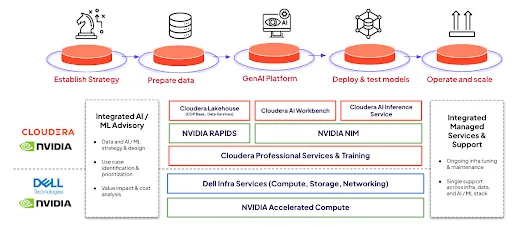
Cloudera announced the integration of Dell ObjectScale into its AI-in-a-Box offering, positioning the collaboration as a comprehensive Private AI platform for enterprise-scale deployments.
The new integration allows Cloudera’s compute engines to operate directly against Dell’s object storage infrastructure, creating what the vendors characterize as a validated, integrated data platform.
Research Note: Pure Storage September Platform Updates
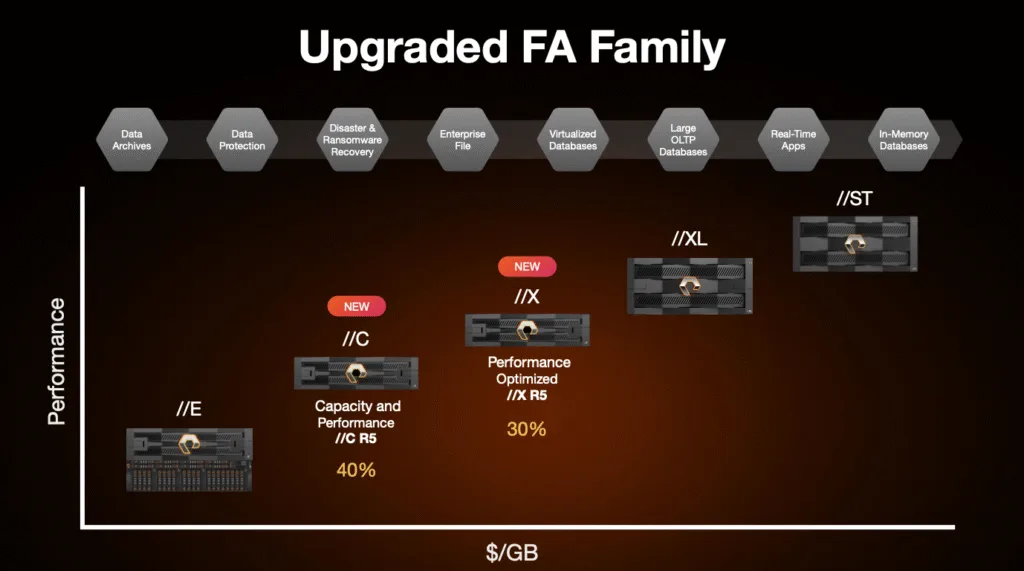
At its recent Accelerate event in New York, Pure Storage announced a comprehensive platform refresh, introducing six major product updates that span high-performance storage arrays, AI acceleration capabilities, cloud-native services, and advanced storage modules.
Research Note: Pure Storage Enhances Cyber-Resilience
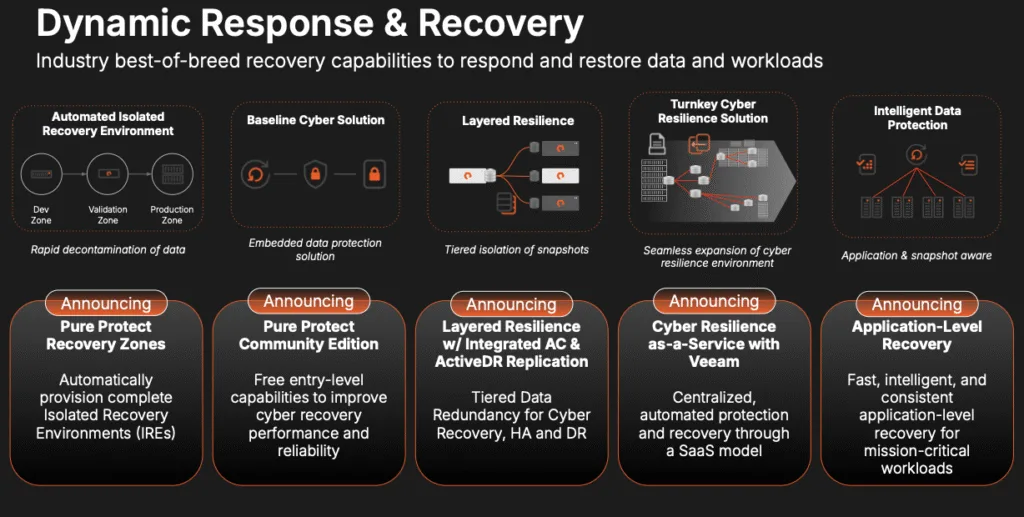
At its recent Accelerate event in New York, Pure Storage unveiled a comprehensive expansion of its cyber-resilience capabilities.
Research Note: MongoDB Application Modernization Platform (AMP)
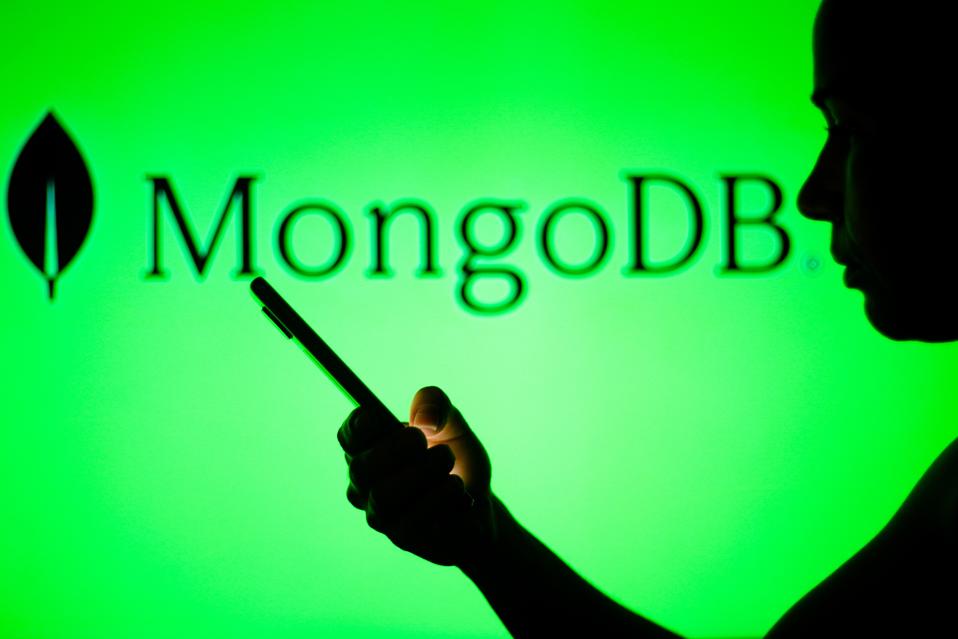
At its recent MongoDB.local NYC event, MongoDB launched its Application Modernization Platform (AMP), seeing the database vendor’s expansion into full-stack enterprise application transformation services.
The new platform combines AI-powered code transformation tools, proven migration frameworks, and professional services to modernize legacy applications for MongoDB’s Atlas cloud platform.
Research Note: CrowdStrike to Acquire AI Security Firm Pangea

CrowdStrike announced its intent to acquire Pangea Cyber for a reported $260 million, adding specialized AI security capabilities to its expanding agentic security platform.
Pangea targets a critical vulnerability in enterprise AI: protecting AI agents and LLMs from prompt injection attacks and other AI-specific threats.
Research Note: Check Point to Acquire Lakera for End-to-End AI Security

Check Point Software announced its intention to acquire Lakera, an AI-native security platform, for $300 million in a transaction expected to close in the fourth quarter of 2025.
The acquisition is designed to establish comprehensive AI security capabilities as part of its broader solution stack.
Research Note: Cisco’s AI-Powered Transformation of the Splunk Portfolio at .conf 2025
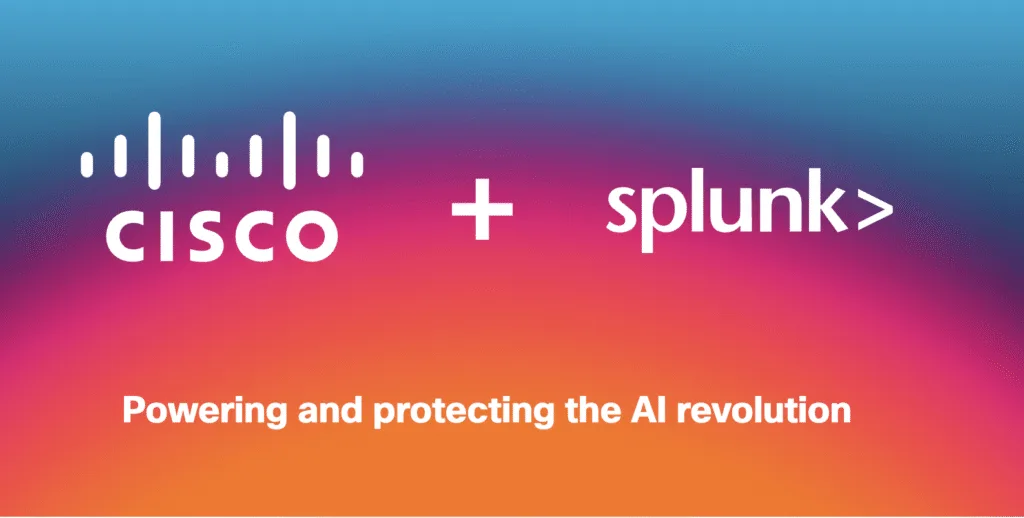
At its recent Splunk .conf25 in Boston, Cisco unveiled a comprehensive suite of AI-powered enhancements across its recently acquired Splunk portfolio, showing significant progress in integrating the two companies’ technologies.
The announcements centered on three core themes: agentic AI automation, unified data architectures, and enhanced observability capabilities.
Research Note: Palo Alto Networks SASE 4.0

Palo Alto Networks recently released Prisma SASE 4.0, the company’s AI-driven secure access service edge platform to address modern threat vectors and data security challenges.
The new release focuses on three primary areas: browser-based threat protection, AI-enhanced data security, and unified operations management.
Research Note: Veeam Software Appliance for Veeam Data Platform

IT teams have long faced the trade-off of choosing between hardware appliances that lock them into specific vendors and increase costs, or spending resources hardening and maintaining custom backup infrastructure. Veeam’s new Software Appliance offers a third path by delivering appliance-like simplicity without the hardware constraints.
Research Note: Marvell Solidifies CXL Leadership w/ Ecosystem-Wide Interoperability
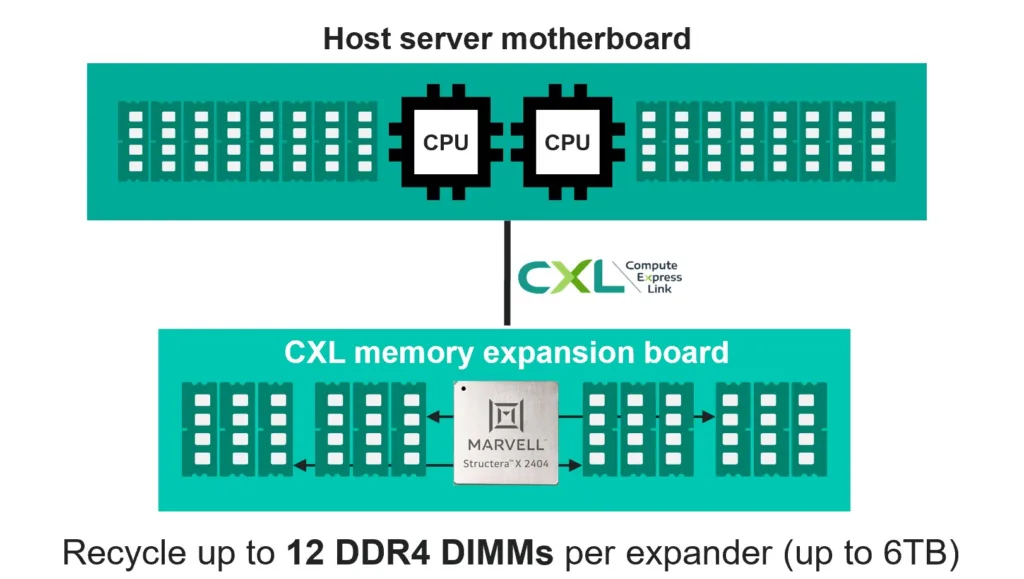
The CXL ecosystem is moving quickly from concept to deployment as hyperscalers, OEMs, and chipmakers seek new ways to address the memory bottlenecks that limit AI, cloud, and high-performance computing workloads. In this environment, interoperability is not a checkbox—it is the foundation that determines how quickly new architectures can reach scale.
Research Note: CrowdStrike Acquires Onum for Streaming Data Capabilities

CrowdStrike recently announced its intended acquisition of Onum, a two-year-old startup specializing in real-time telemetry pipeline management, to enhance its Falcon Next-Gen SIEM platform.
Research Note: IBM and AMD Collaborate on Classical-Quantum Computing

IBM and AMD recently announced a strategic collaboration to develop quantum-centric supercomputing architectures that combine quantum computers with high-performance computing infrastructure. The partnership is based on a memorandum of understanding between the companies, with no immediate financial exchange.
Research Note: Dell’s New Automation Platform
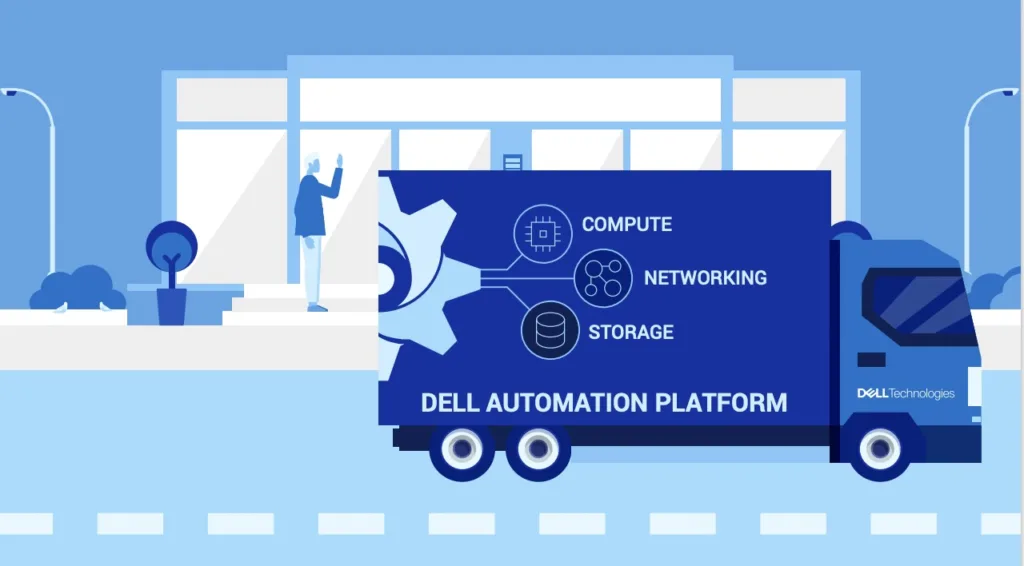
First teased at Dell Technologies World earlier this year, the company has launched its Dell Automation Platform. The new centralized software orchestration solution consolidates management of AI, private cloud, and edge computing environments.
Research Note: DXC Technology and 7AI Partner on Agentic Security Operations

Announced earlier this month at Black Hat, DXC Technology has partnered with cybersecurity startup 7AI to launch the DXC Agentic Security Operations Center (SOC) for delivering managed security services.
The collaboration integrates 7AI’s autonomous AI agents into DXC’s global security operations workflow, covering alert ingestion, investigation, and remediation processes.
Research Note: CrowdStrike Falcon Next-Gen Identity Security

CrowdStrike recently launched its new Falcon Next-Gen Identity Security, a unified platform that consolidates identity protection capabilities across human, non-human, and AI agent identities within hybrid environments. The solution integrates initial access prevention, privileged access management (PAM), identity threat detection and response (ITDR), SaaS identity security, and agentic identity protection into the existing Falcon platform architecture.
Research Note: F5 Acquires MantisNet

Application security player F5 announced its acquisition of real-time network observability company MantisNet for an undisclosed amount. The acquisition promises to enhance F5’s Application Delivery and Security Platform (ADSP) with eBPF-powered observability capabilities, specifically targeting the monitoring of encrypted traffic in containerized infrastructures.
Microsoft Project Ire: Autonomous Malware Reverse Engineering at Scale

Microsoft recently introduced Project Ire, an autonomous AI agent that performs full-scale reverse engineering and classification of software files, with a focus on malware detection.
Research Note: Tenable Brings Exposure Management to Enterprise AI
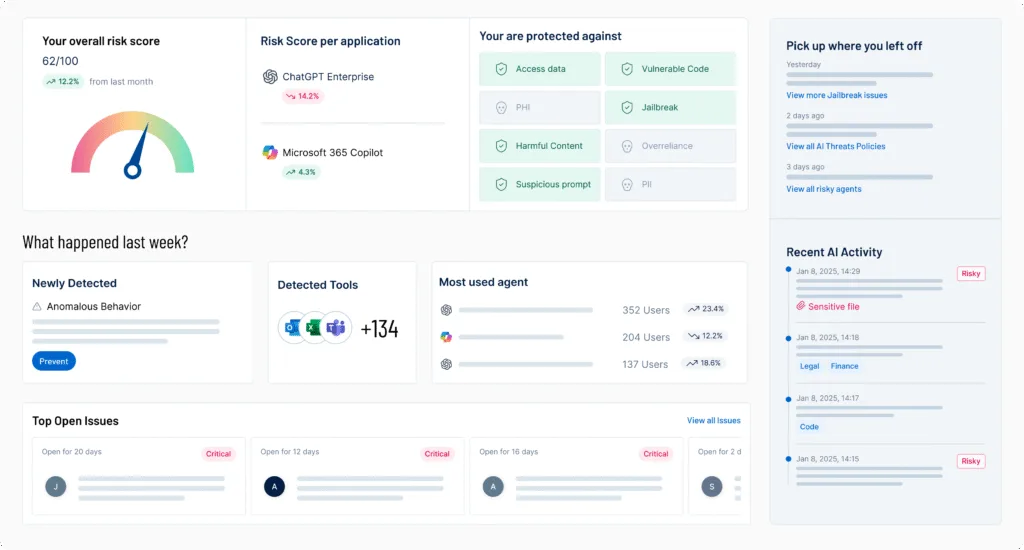
Tenable recently expanded its Tenable One exposure management platform with AI Exposure, a comprehensive solution designed to address generative AI security risks in enterprise environments. Announced at Black Hat USA 2025, the platform addresses the growing visibility gap as organizations rapidly adopt AI tools, such as ChatGPT Enterprise and Microsoft Copilot.
Research Note: Rubrik Safeguards Agentic Workflows with Agent Rewind
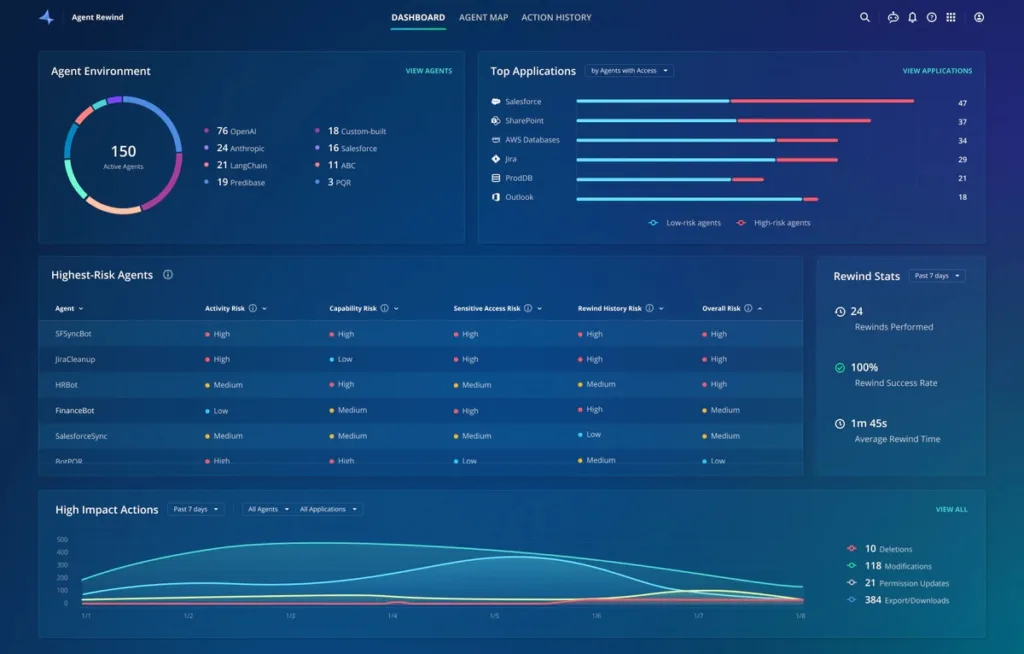
Rubrik recently introduced Agent Rewind, a solution targeting the emerging challenge of AI agent error recovery. The new offering, powered by technology from Rubrik’s acquisition of AI infrastructure startup Predibase earlier this year, provides visibility, audit trails, and rollback capabilities for actions taken by autonomous AI agents across enterprise systems.
Research Brief: Oracle Globally Distributed Exadata Database on Exascale Infrastructure
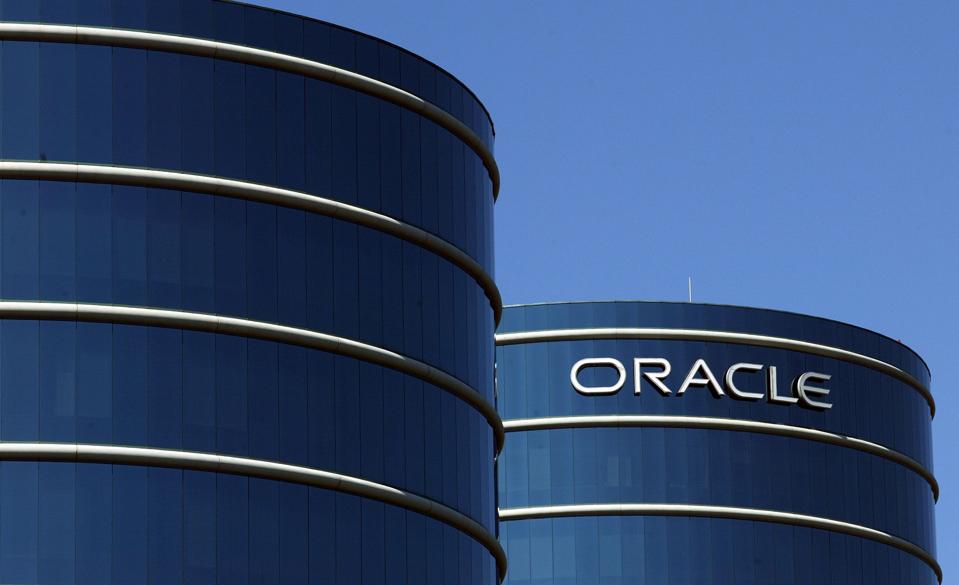
Oracle announced the general availability of its Globally Distributed Exadata Database on Exascale Infrastructure, a managed cloud service that combines distributed database capabilities with serverless computing architecture. The platform automatically distributes and synchronizes data across multiple Oracle Cloud Infrastructure (OCI) regions, maintaining full SQL compatibility and support for Oracle Database features.
Research Note: SentinelOne to Acquire Prompt Security

SentinelOne recently announced a definitive agreement to acquire Prompt Security for an estimated $250-300 million, more than 10x the startup’s funding history. The transaction, expected to close by November 2025, will allow SentinelOne to address enterprise AI governance risks through real-time monitoring and control of generative AI tool usage.
Research Note: Cloudera Acquires Taikun for Kubernetes Capabilities

Cloudera announced its acquisition of Taikun, a Czech-based company that develops a Kubernetes-native platform for managing cloud and on-premises infrastructure across hybrid and multi-cloud environments.
The acquisition adds a fully integrated, Kubernetes-based compute layer to the Cloudera Data Platform (CDP), enabling consistent deployment and management of data and AI services across distributed and regulated IT estates.
Research Note: AWS Open Sources MCP Server for Aparch Spark History Server
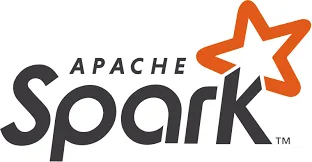
AWS recently announced the open-source release of Spark History Server MCP, a specialized implementation of the Model Context Protocol (MCP). This server enables AI agents to directly access and analyze historical execution data from Apache Spark workloads through a standardized, structured interface.
Research Note: AGNTCY Moves to Linux Foundation
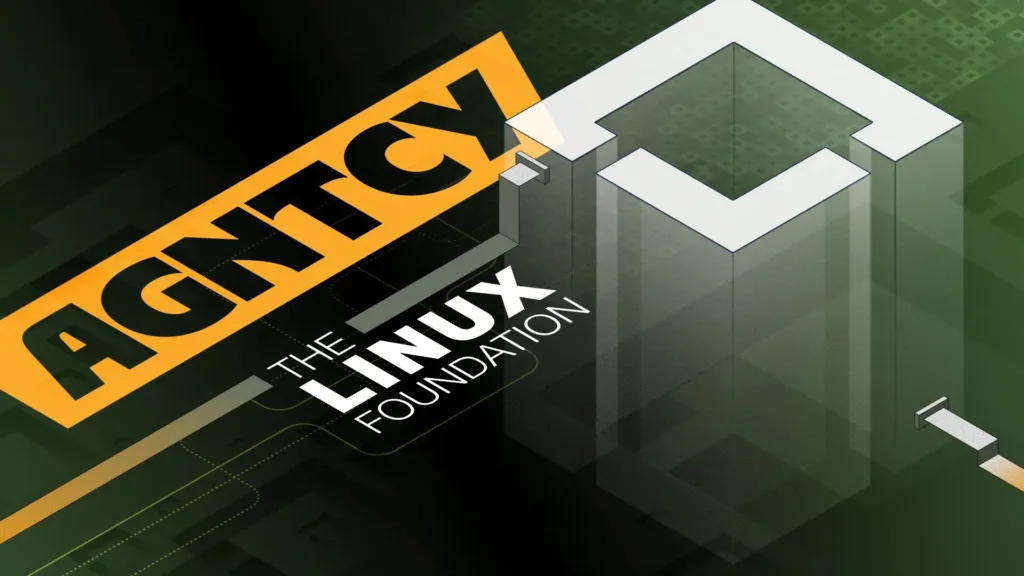
AGNTCY delivers foundational infrastructure for the “Internet of Agents”, enabling AI agents from different frameworks, vendors, and deployment environments to discover each other, establish identity, communicate securely, and share runtime observability data.
Research Note: Palo Alto Networks’ $25 Billion Acquisition of CyberArk

Palo Alto Networks announced its intent to acquire CyberArk for $25 billion in a cash-and-stock transaction, marking the company’s largest acquisition to date and one of the most significant cybersecurity consolidations in 2025. The deal values CyberArk at $495 per share, representing a 29.2% premium to its pre-announcement price.
The acquisition addresses Palo Alto’s strategic gap in identity security and privileged access management (PAM), positioning the combined entity to capture opportunities in the emerging AI and autonomous agent security market.
Research Note: Red Hat OpenShift on Dell AI Factory with NVIDIA
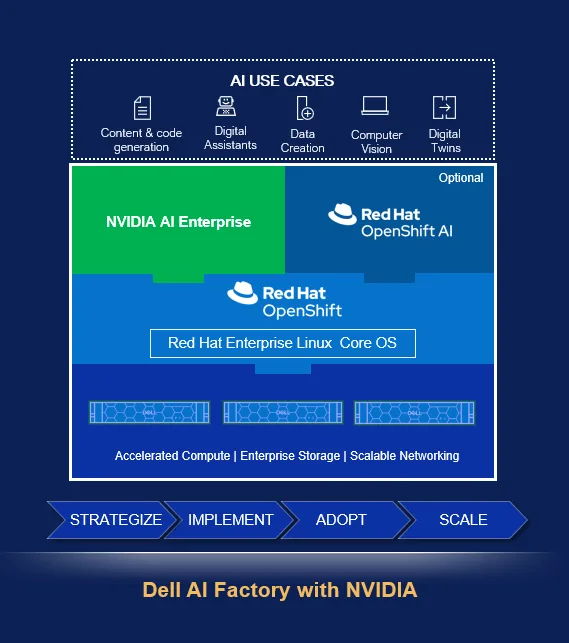
Dell Technologies recently announced that its integrated Red Hat OpenShift with its Dell AI Factory with NVIDIA platform is now generally available to customers. The solution was previewed earlier this year at Dell Tech world. The updated solution combines Dell PowerEdge infrastructure, NVIDIA GPU acceleration, Red Hat container orchestration, and NVIDIA AI Enterprise software into a validated stack.
Research Note: Extreme Networks’ Platform ONE
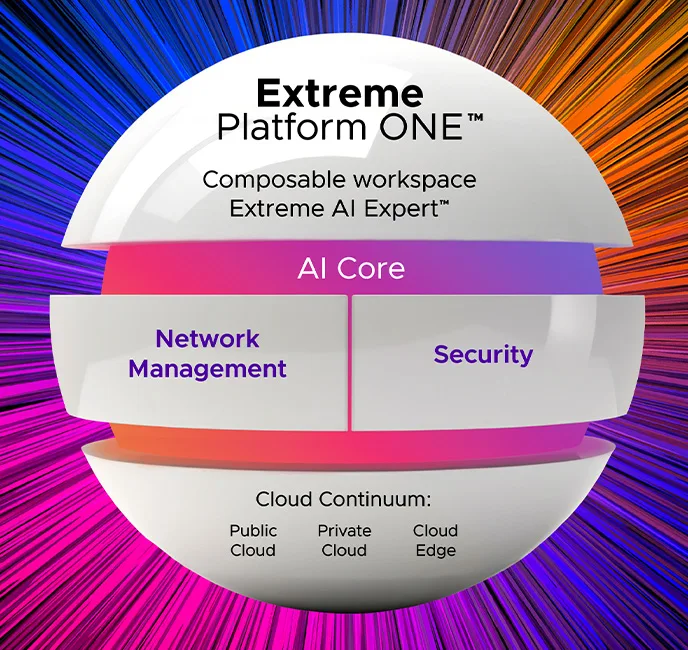
The Extreme Platform ONE integrates conversational, multimodal, and agentic AI capabilities into a single enterprise networking management system, consolidating oversight across physical, access, fabric, and service layers through a cloud-native architecture.
Open Flash Platform Initiative Aims to Redefine Flash Storage for AI

Six industry participants recently launched the Open Flash Platform (OFP) initiative, backed by six founding members: Hammerspace, the Linux Foundation, Los Alamos National Laboratory (LANL), ScaleFlux, SK hynix, and Xsight Labs.
The initiative purports to address the challenges presented by the next wave of AI-driven data storage, specifically the limitations of power, heat, and data center space.
Research Note: AWS Enhances S3 for Enterprise AI

At its recent AWS Summit in NYC, Amazon Web Services introduced two significant enhancements to its S3 object storage service: S3 Vectors for cost-effective vector data storage and expanded S3 Metadata capabilities for comprehensive object visibility.
Research Note: Enterprise AI Agents Take Center Stage at AWS Summit NYC 2025

AWS recently concluded its New York City Summit with a clear message: the future of enterprise software is agentic AI, and Amazon aims to own the infrastructure that enables it.
Research Note: IBM Brings Hyper Protect to Red Hat

IBM recently expanded its Hyper Protect confidential computing portfolio to the Red Hat ecosystem through two new offerings: Hyper Protect Container Runtime (HPCR) for Red Hat Virtualization Solutions and Hyper Protect Confidential Containers (HPCC) for Red Hat OpenShift Container Platform.
Research Note: IBM Power11
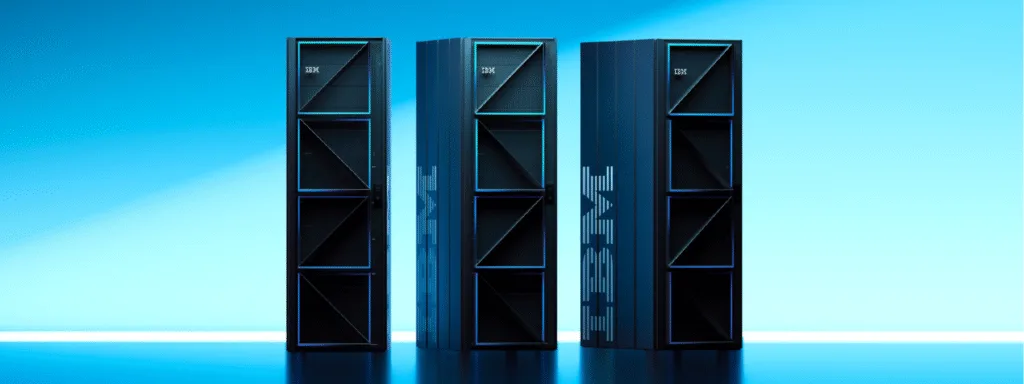
IBM recently announced the latest generation of its Power family, Power 11. The new processor and associated servers provide a significant architectural evolution, focusing on autonomous operations, AI integration, and hybrid cloud deployment.
Research Note: Oracle Introduces MCP Server for Oracle Database

Oracle this week introduced its new MCP Server for Oracle Database, leveraging Anthropic’s Model Context Protocol to enable direct interaction with its AI assistant on the database platform. The new capability transforms AI-database workflows (from code generation to execution), allowing large language models to connect, query, and analyze Oracle databases while maintaining existing security frameworks.
With MCP Server for Oracle Database, Oracle becomes the first major database vendor to implement MCP, continuing its aggressive approach to quickly bringing MCP capabilities to its database customers.
Research Brief: Oracle Database@AWS

First announced in December 2024, Oracle and AWS have announced the general availability of Oracle Database@AWS. This strategic partnership positions Oracle Exadata Database Service and Oracle Autonomous Database on dedicated Oracle Cloud Infrastructure within AWS data centers.
Research Note: HPE GreenLake Intelligence
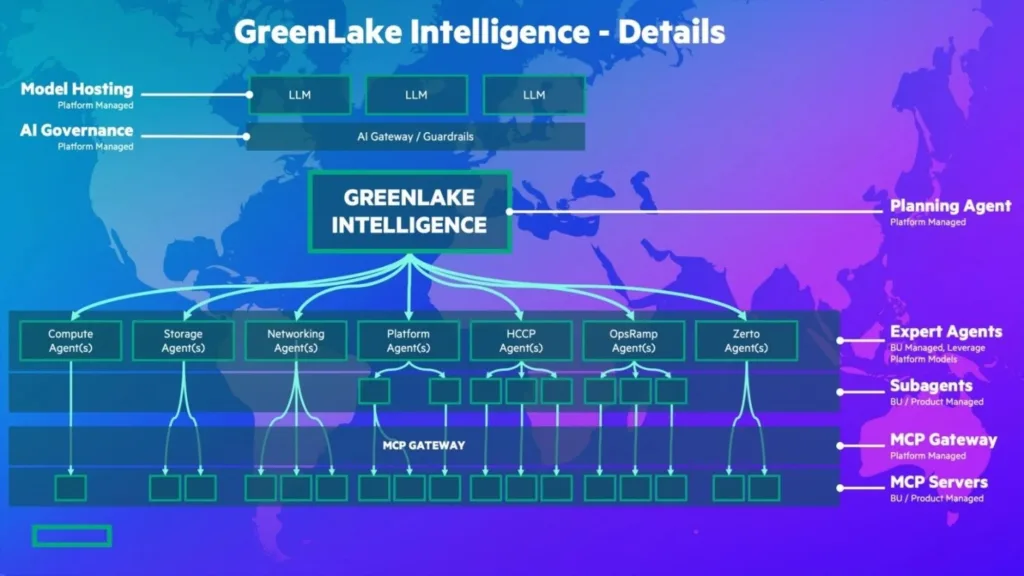
At the recent HPE Discover event, HPE introduced GreenLake Intelligence, an agentic AI framework that attempts to address the operational complexity of modern hybrid IT environments through autonomous agent orchestration.The platform combines domain-specific large language models with real-time telemetry from HPE’s infrastructure portfolio, enabling proactive, cross-domain IT operations management.
Research Note: HPE’s Updated AI Factory

At its recent Discover event, HPE announced an expansion of its NVIDIA-based AI Computing portfolio with three distinct AI factory configurations targeting enterprise, service provider, and sovereign deployment scenarios.The offerings center on the upgraded HPE Private Cloud AI platform, which integrates NVIDIA Blackwell GPUs with HPE ProLiant Gen12 servers, custom storage solutions, and orchestration software.
Research Note: Pure Storage’s New Enterprise Data Cloud
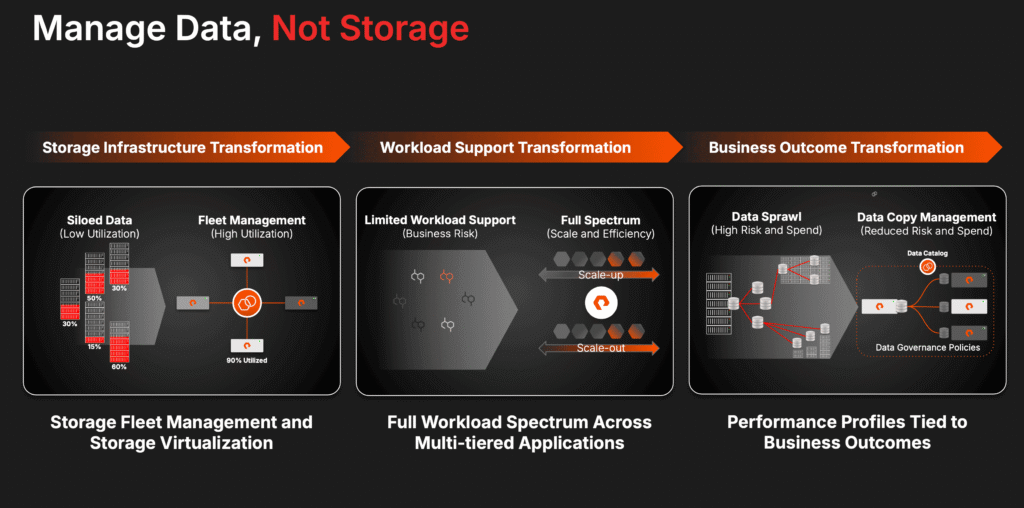
At its recent Pure //Accelerate event, Pure Storage introduced its new Enterprise Data Cloud (EDC) architecture, positioning the concept as a unified data management platform that consolidates storage operations across hybrid environments.
The EDC centers on Pure Fusion, the company’s storage orchestration layer, with new automation capabilities, including workload presets, workflow orchestration, and enhanced security integrations.
Research Brief: WEKA NeuralMesh, a Micro-Services-based AI Data Architecture
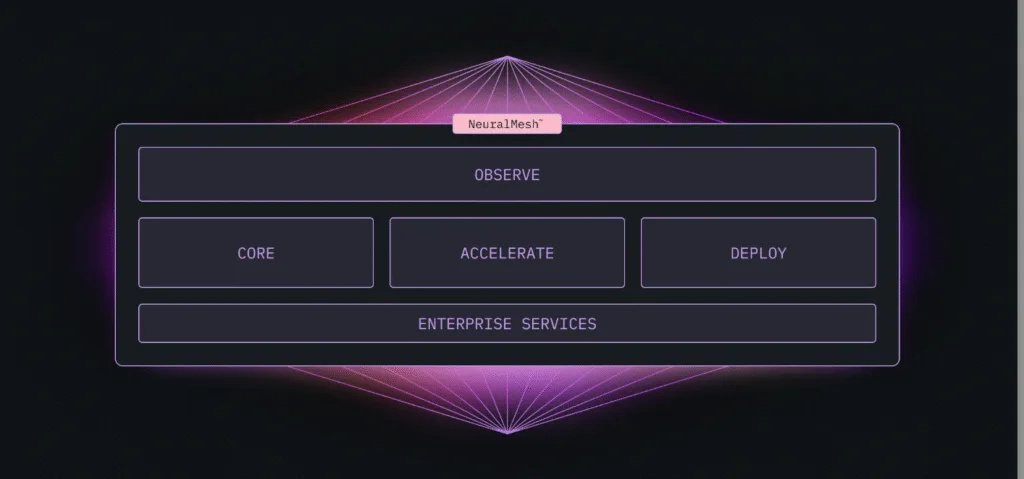
WEKA recently announced NeuralMesh, its software-defined, microservices-based storage platform engineered for high-performance, distributed AI workloads. NeuralMesh introduces a dynamic mesh architecture that departs from traditional monolithic or appliance-bound storage systems.
It addresses the requirements of emerging AI applications, including agentic AI, large-scale inference, and token warehouse infrastructure, by delivering consistent microsecond-level latency, fault isolation, and scale-out performance across hybrid environments.
Research Note: Snowflake Evolves into AI Platform at Summit 2025

Snowflake recently held its annual Snowflake Summit in San Francisco where the announcements show the company evolving from a data warehouse provider to an AI platform orchestrator. The announcements address three core enterprise challenges: democratizing data access beyond technical teams, accelerating AI development workflows, and reducing data integration overhead.
Research Note: Broadcom Releases VMware Cloud Foundation 9.0
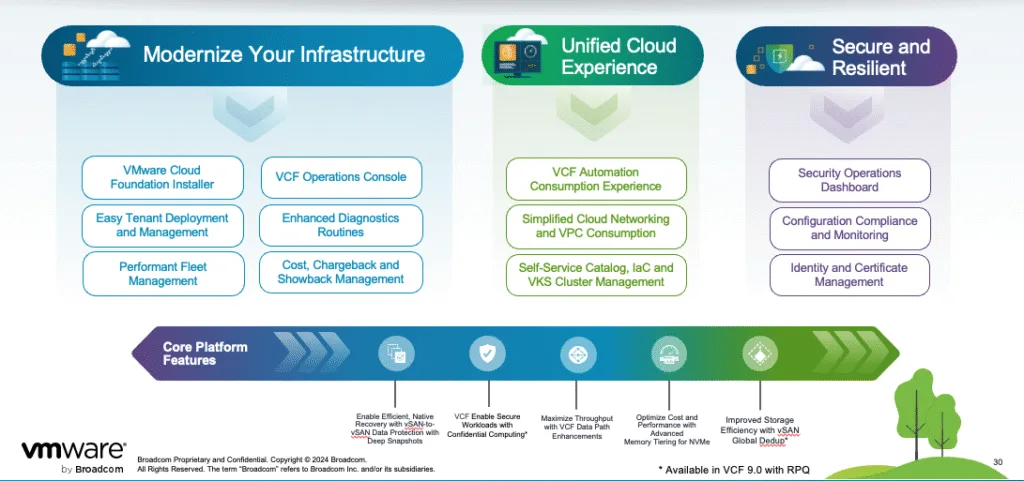
Broadcom has announced the general availability of VMware Cloud Foundation (VCF) 9.0, a major release that advances its unified private cloud platform across on-premises, edge, and managed service provider environments.
This release consolidates infrastructure management and developer operations into a single interface while integrating support for AI workloads, modern applications, and advanced cost transparency and security features.
Research Note: AMD Raises its Game at its Advancing AI 2025 Event
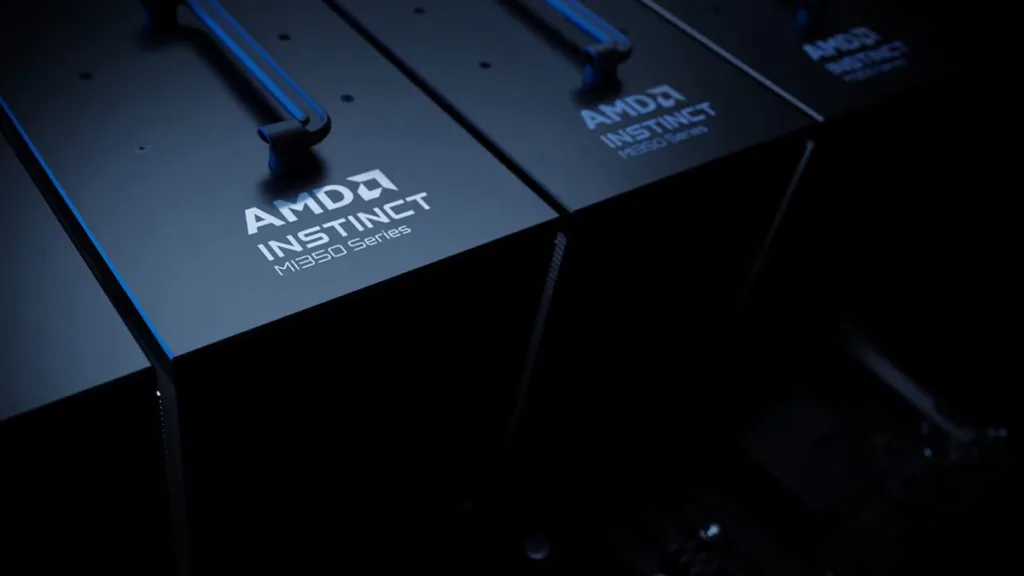
AMD announced a comprehensive portfolio of AI infrastructure solutions at its recent Advancing AI 2025 event, positioning itself as a full-stack competitor to NVIDIA.
The announcements include the immediate availability of MI350 Series GPUs with 4x generational performance improvements, the ROCm 7.0 software platform achieving 3.5x gains in inference, and the AMD Developer Cloud for broader ecosystem access.
AMD also previewed its 2026 “Helios” rack solution, which integrates MI400 GPUs, EPYC “Venice” CPUs, and Pensando “Vulcano” NICs.
Research Note: VDURA Data Platform 11.2
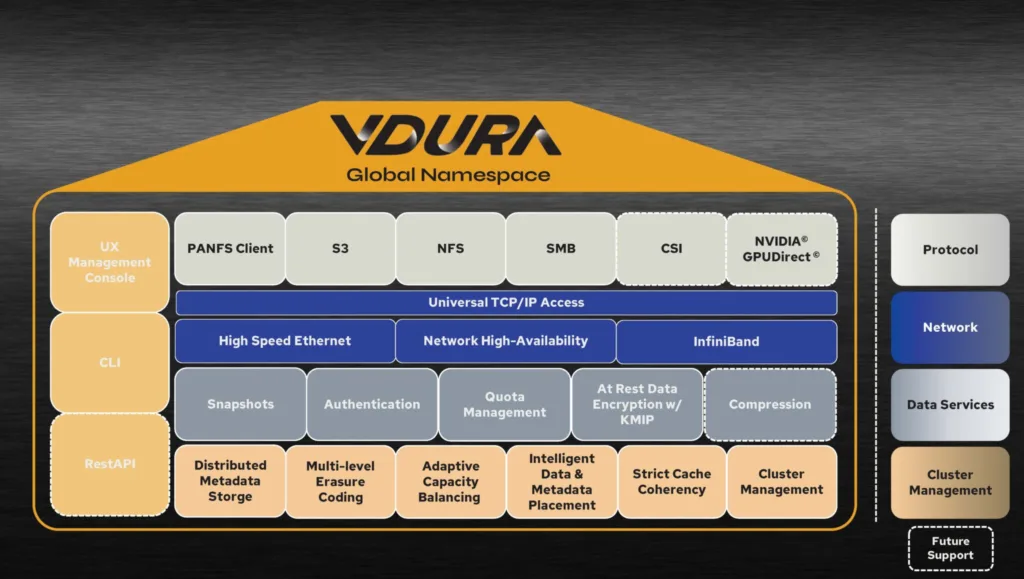
Earlier this month, VDURA announced Version 11.2 of its Data Platform, featuring native Kubernetes CSI support, end-to-end encryption, and the VDURACare Premier support package.
The release also includes a technology preview of V-ScaleFlow, a data movement capability that VDURA claims will reduce flash requirements by over 50% through intelligent tiering between QLC flash and high-capacity HDDs.
Research Note: Snowflake’s Crunchy Data Acquisition

At its annual Snowflake Summit in San Francisco, Snowflake announced its intent to acquire Crunchy Data for approximately $250 million. The deal brings enterprise-grade PostgreSQL capabilities into Snowflake’s AI Data Cloud through a new offering called Snowflake Postgres. This acquisition addresses a critical gap in Snowflake’s platform, while intensifying competition with Databricks for dominance in AI infrastructure.
Quick Take: Dell Tech World 2025

Last week I was back in Las Vegas for Dell Technologies World 2025. The company has a broad portfolio but was telling a single-minded story: Dell has a relentless focus on AI, emphasizing the Dell AI Factory and the shift towards on-premises enterprise AI solutions.
DataCore Acquires StarWind, Expands HCI Capabilities from Core to Edge

DataCore Software, a long-time player in software-defined storage (SDS) and data infrastructure, announced the acquisition of StarWind Software, a hyperconverged infrastructure (HCI) vendor best known for serving edge and ROBO environments
Research Note: Dell Updates its Dell AI Factory with NVIDIA

At its annual Dell Technologies World event in Las Vegas, Dell announced significant updates to its AI Factory with NVIDIA, expanding the platform’s hardware capabilities and introducing new managed services.
The updated platform targets enterprises transitioning from AI experimentation to full-scale implementation, particularly for agentic AI and multi-modal applications.
Key updates include new PowerEdge server configurations supporting up to 256 NVIDIA Blackwell Ultra GPUs per rack, enhanced data platform integrations, and comprehensive managed services.
Research Note: HPE’s New Storage SLAs and Edge-Ready Backup Appliances

HPE recently introduced new service-level guarantees and product innovations focused on cyber resilience, energy efficiency, and zero data loss for its flagship HPE Alletra Storage MP B10000 platform.
It also expanded its StoreOnce data protection portfolio with new appliances tailored to remote offices and SMBs.
NAND Insider Newsletter: Week of May 12, 2025

Each week NAND Research puts out a newsletter for our industry customers taking a look at what’s driving the week, and what happened last week that caught our attention. Below is a excerpt from this week’s, May 10, 2025.
Research Note: Nutanix & Pure Storage Partnership

At the recent Nutanix .NEXT event, Pure Storage and Nutanix announced a collaboration to deliver a jointly certified solution combining Nutanix Cloud Infrastructure with Pure Storage FlashArray over NVMe/TCP.
The alliance targets enterprise customers seeking alternatives to traditional virtualization stacks, particularly VMware deployments.
Quick Take: UALink & OCP Join Forces
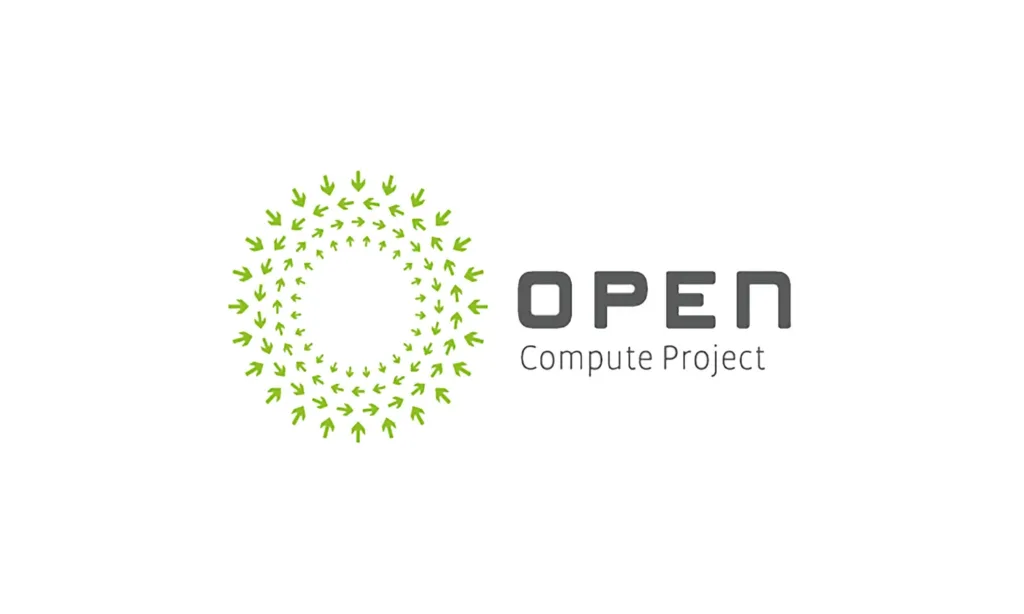
The Open Compute Project (OCP) Foundation and the Ultra Accelerator Link (UALink) Consortium have announced a strategic collaboration to standardize and deploy high-performance, open scale-up interconnects for next-generation AI and HPC clusters.
Research Note: IBM Orchestrate for Enterprise Agentic AI
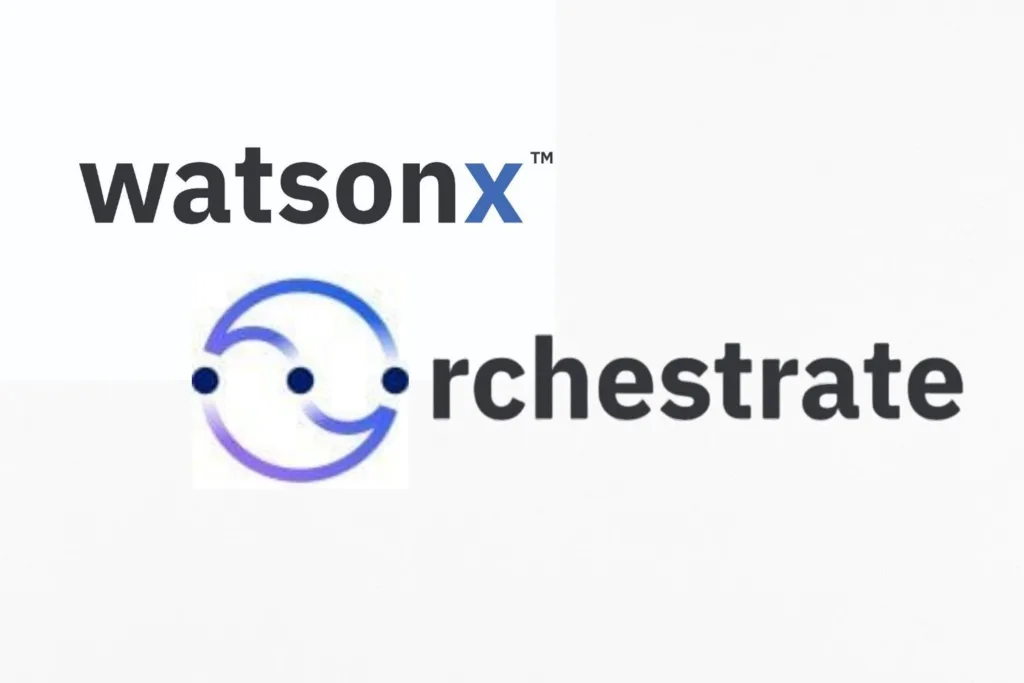
At IBM Think 2025 in Boston, IBM announced its new watsonx Orchestrate, catching the shift that sees enterprise AI moving beyond simple model deployment toward agent orchestration.
The platform enables organizations to build, deploy, and manage AI agents across enterprise environments with minimal technical expertise required.
